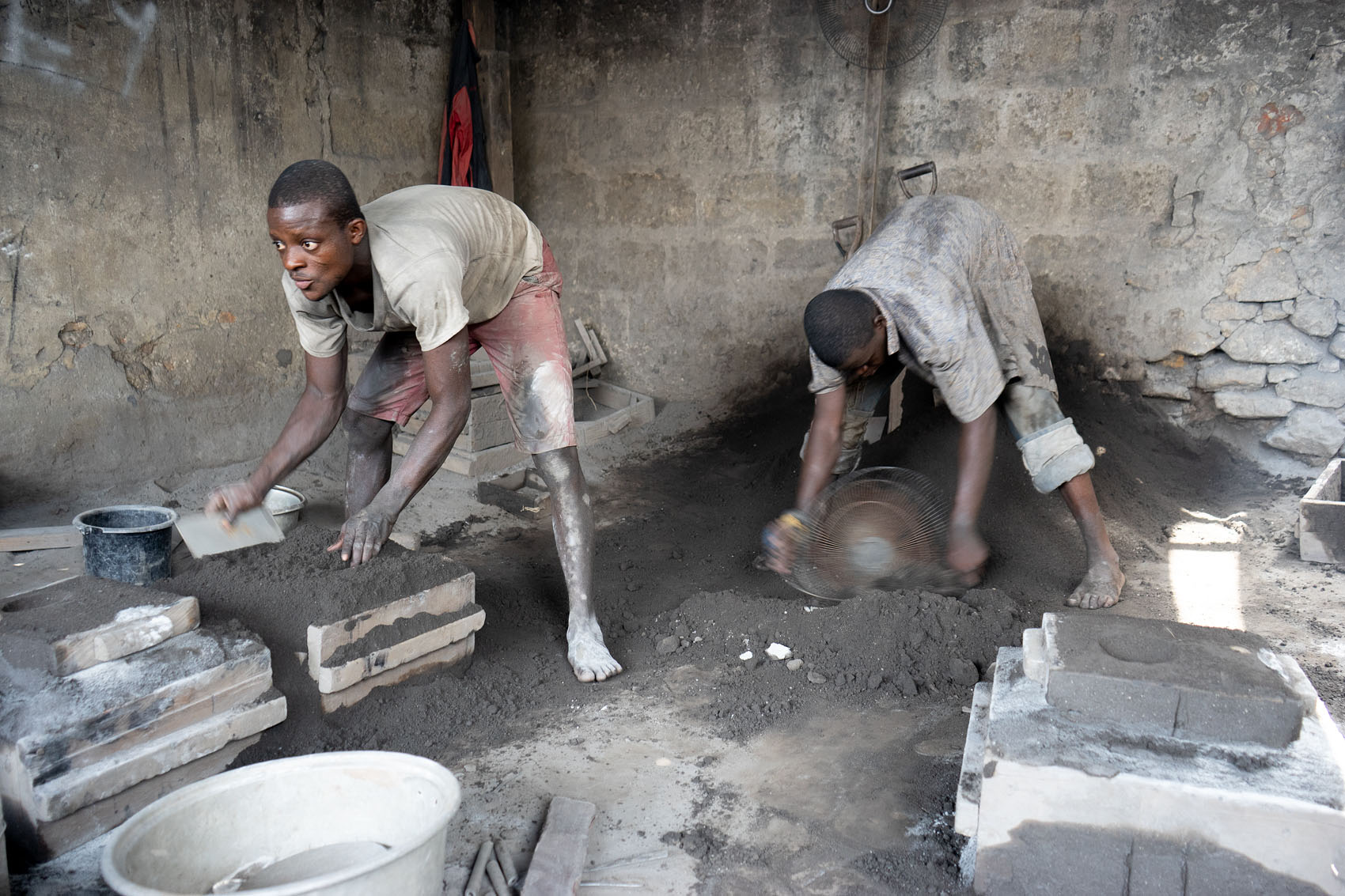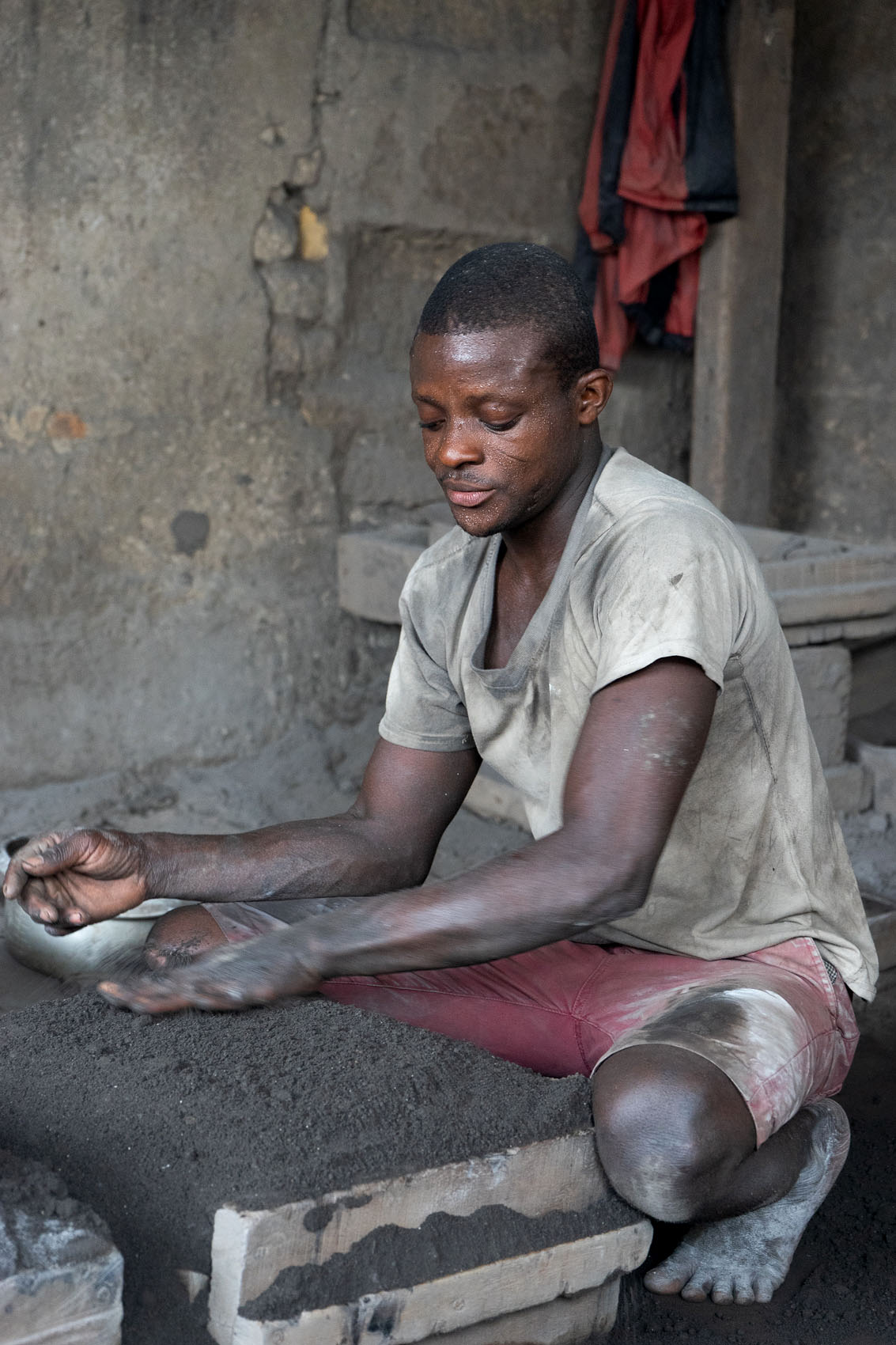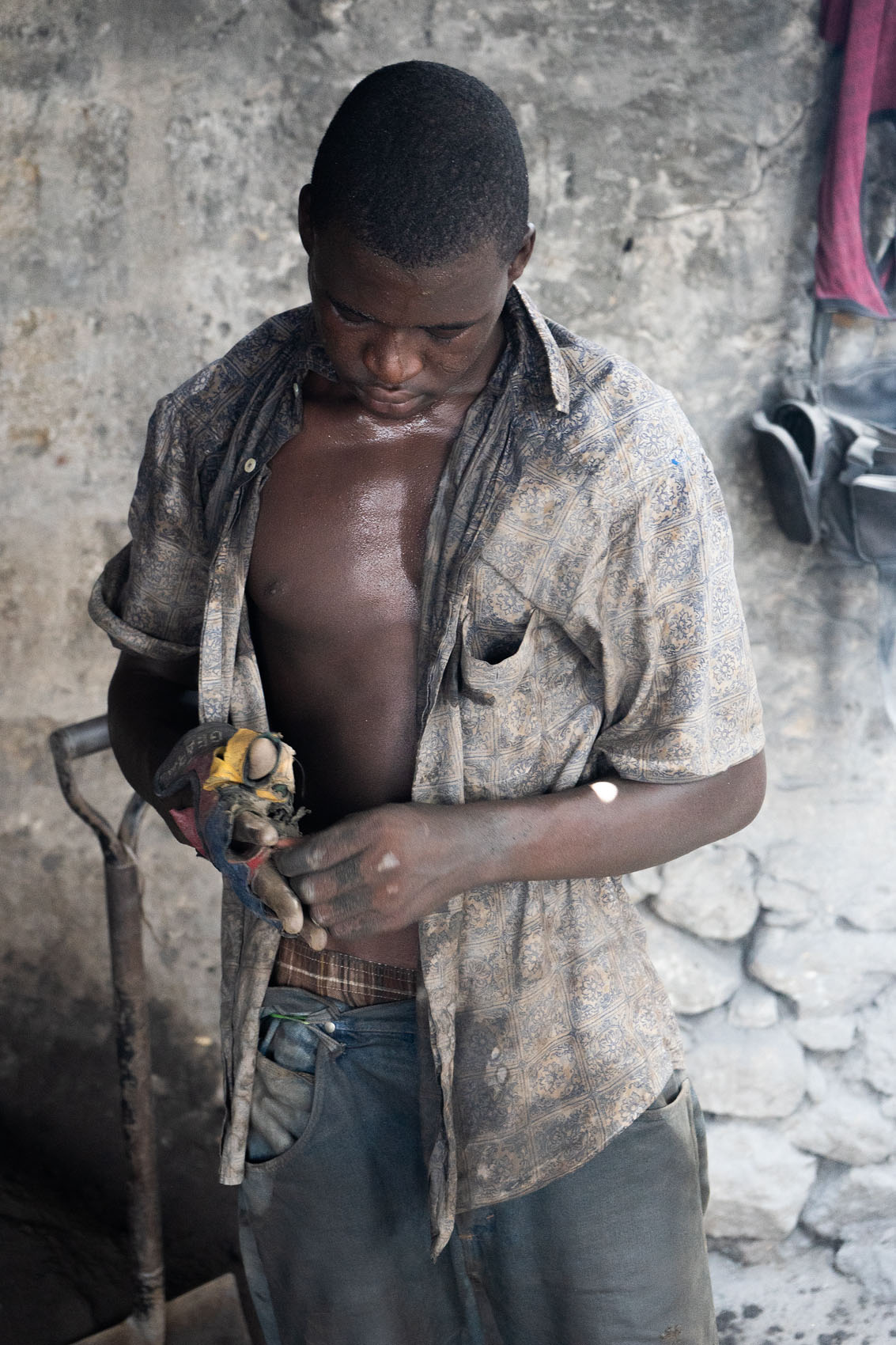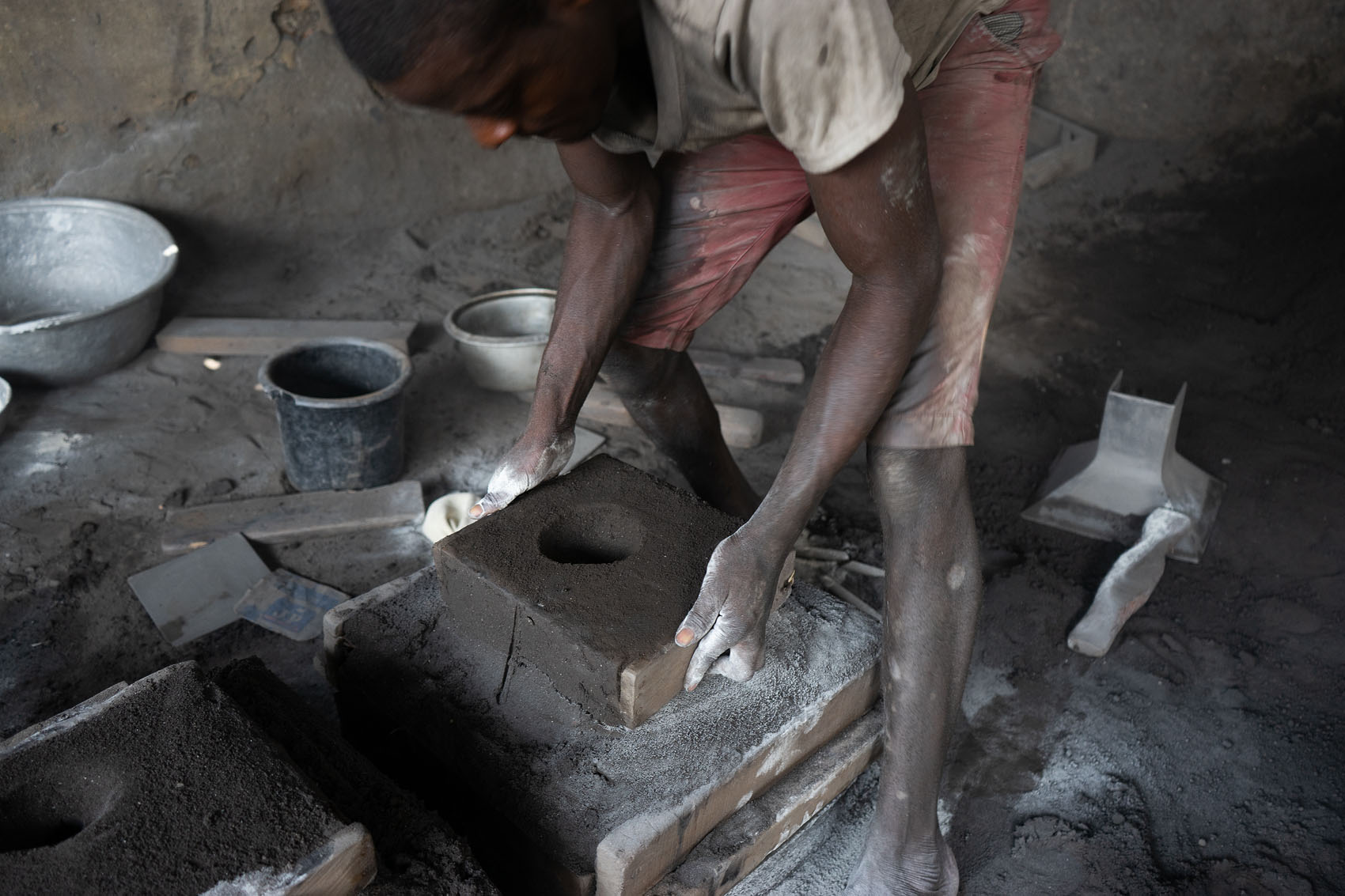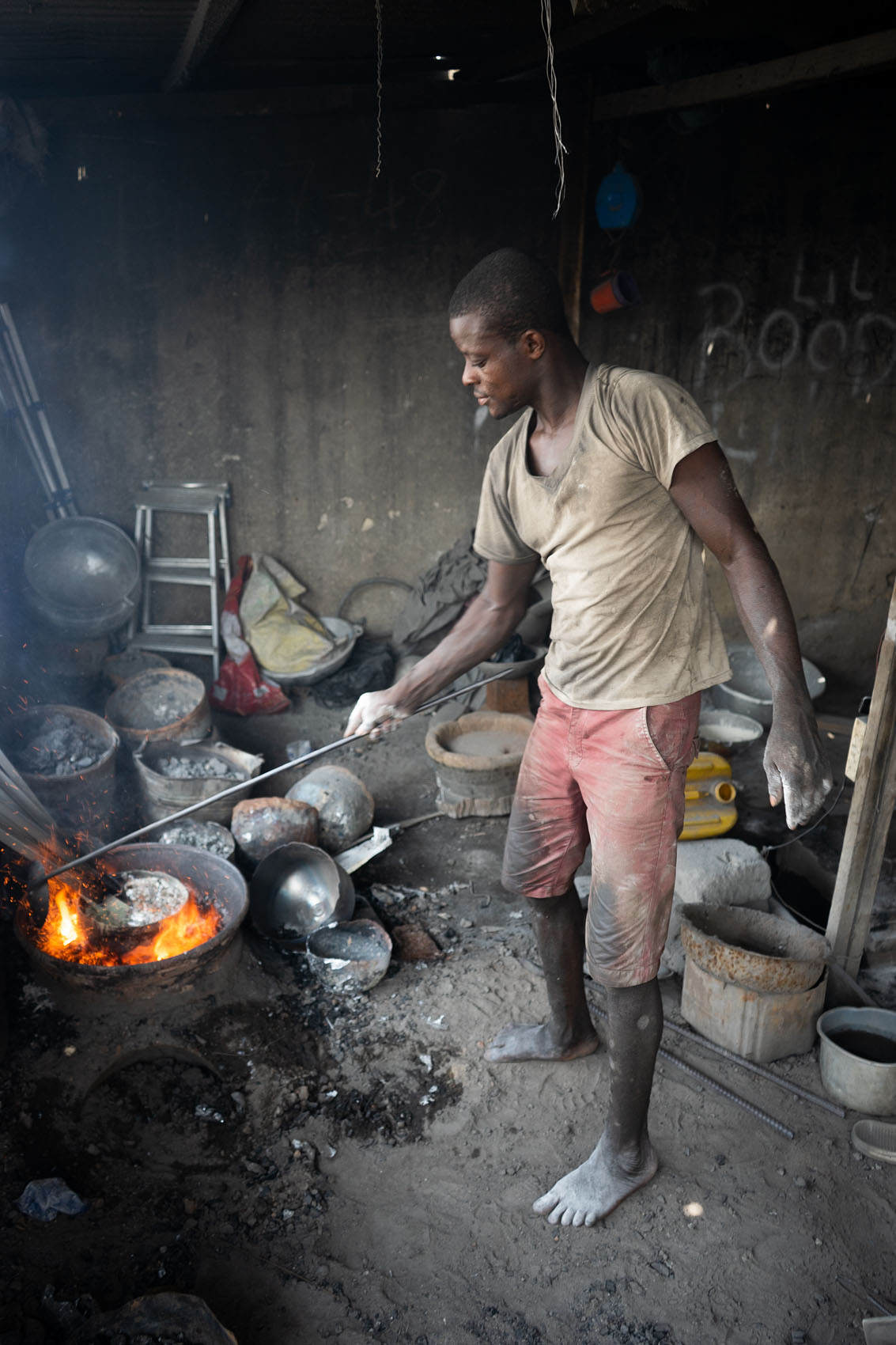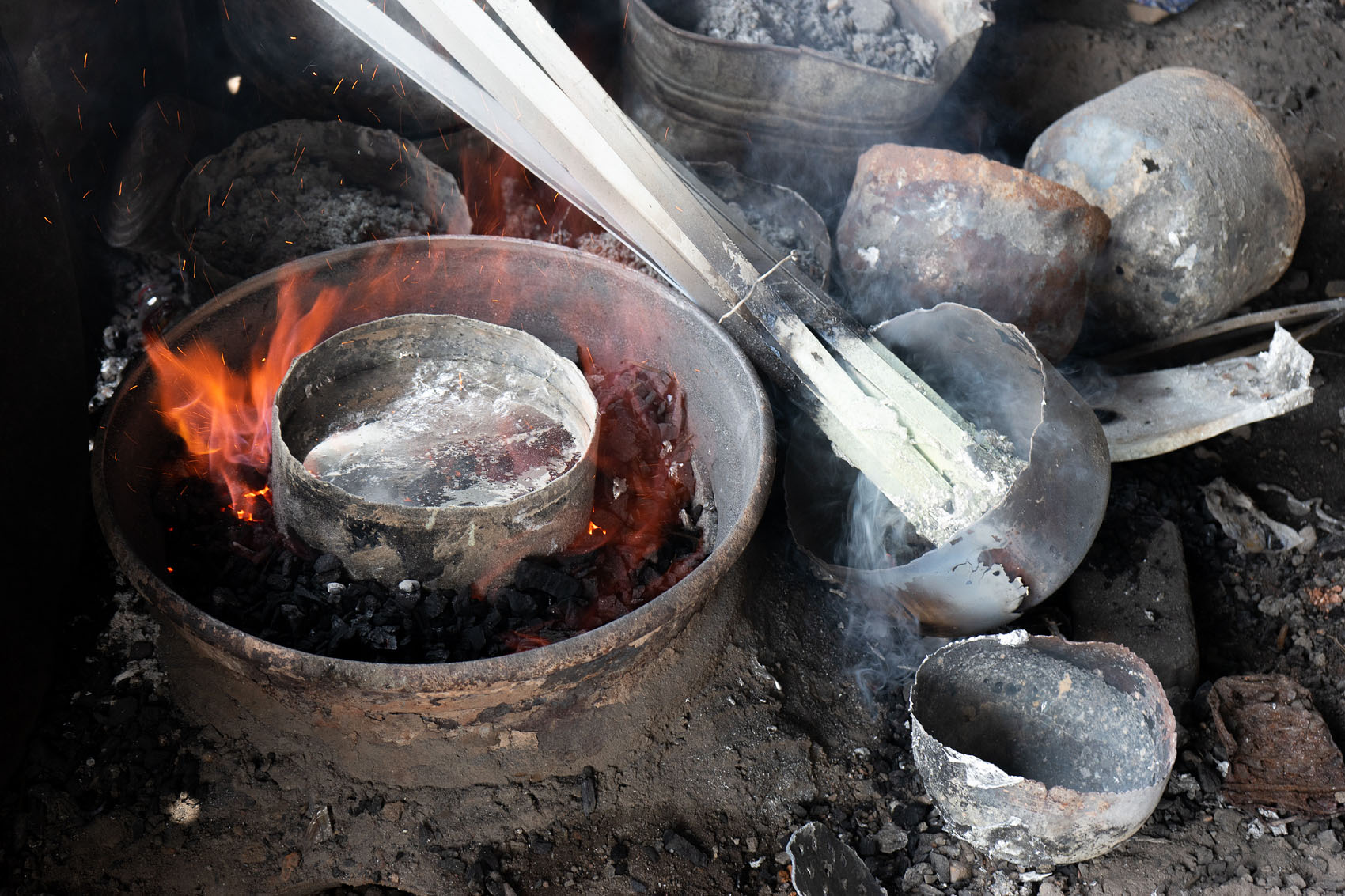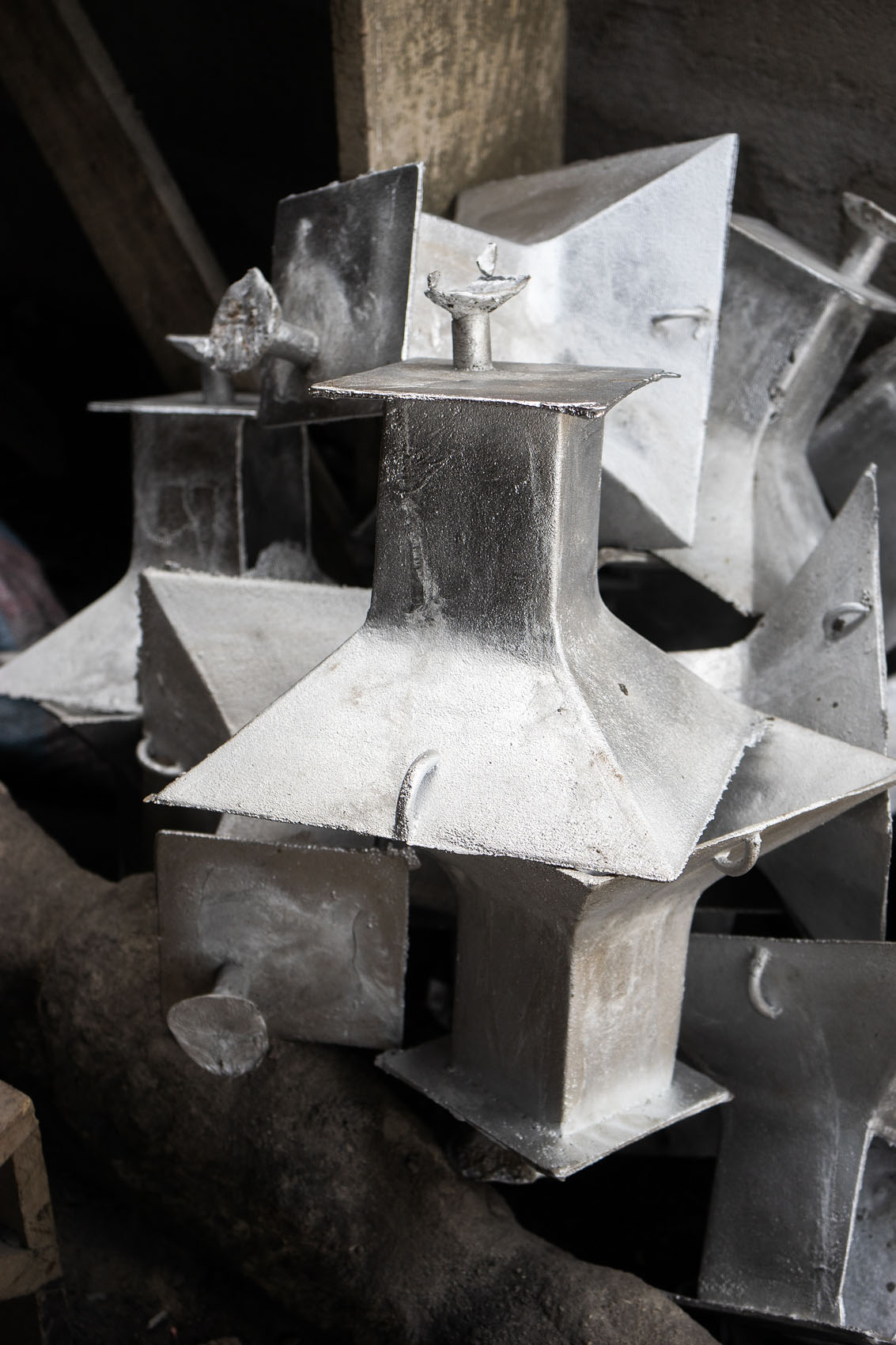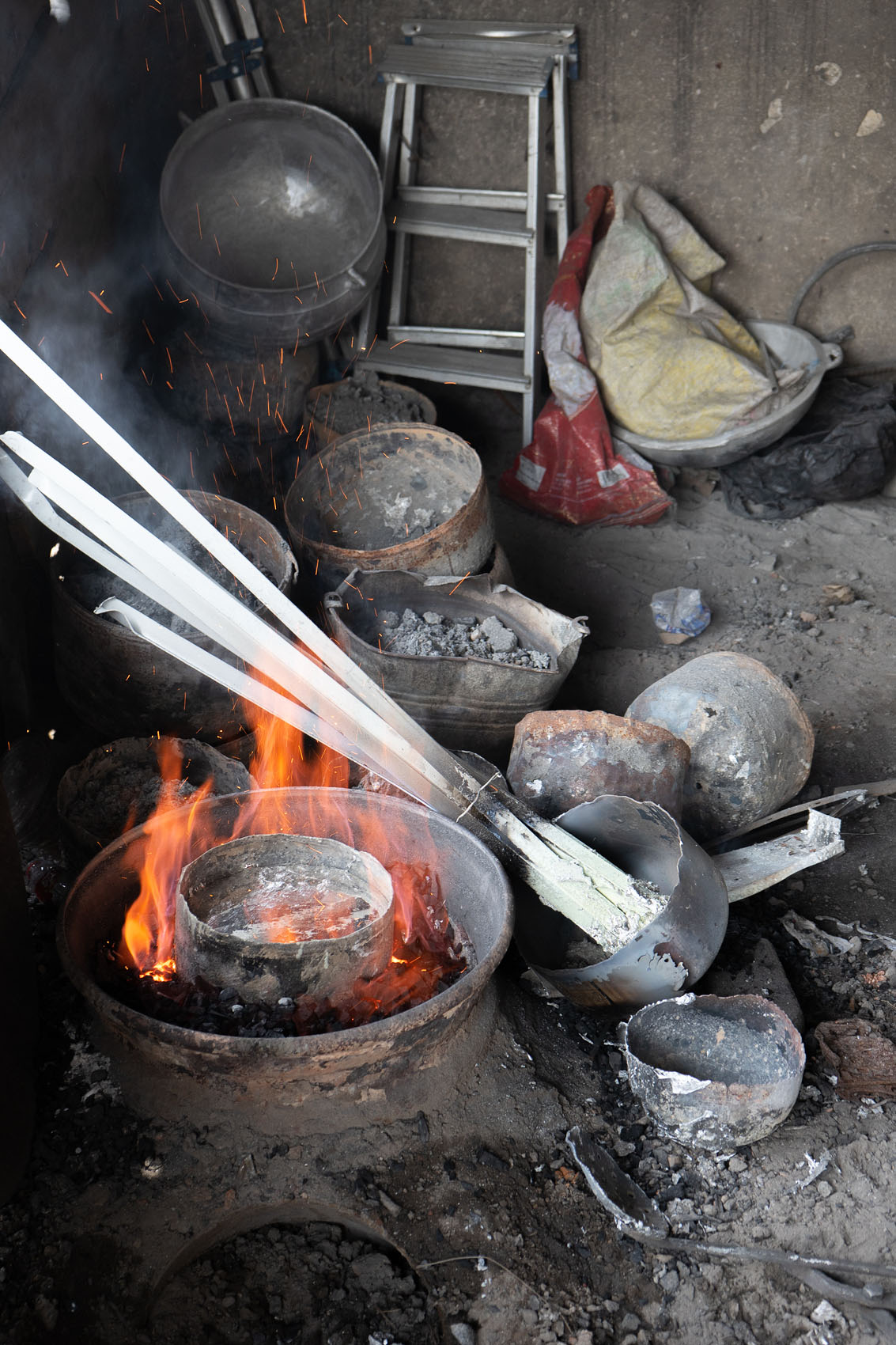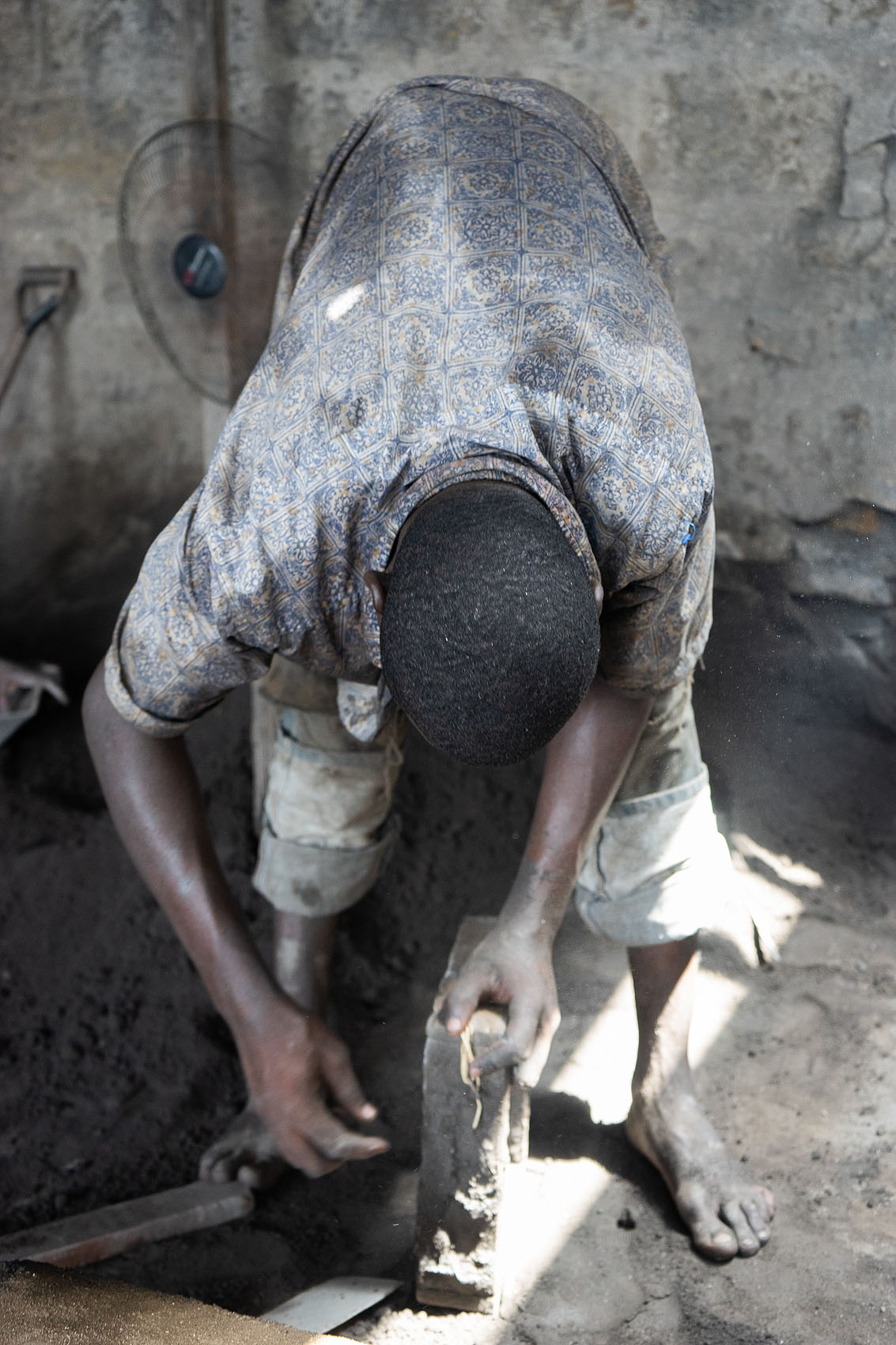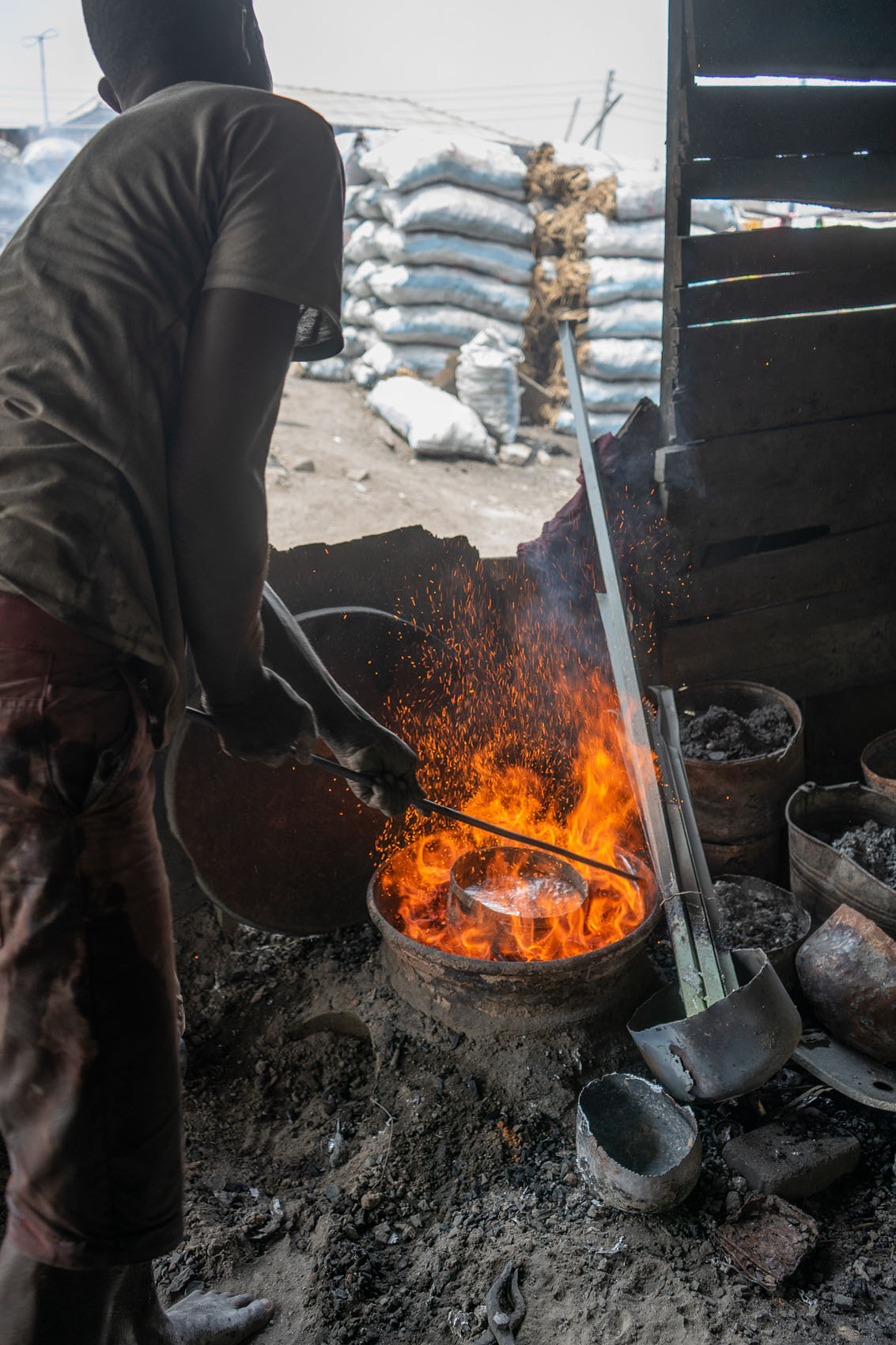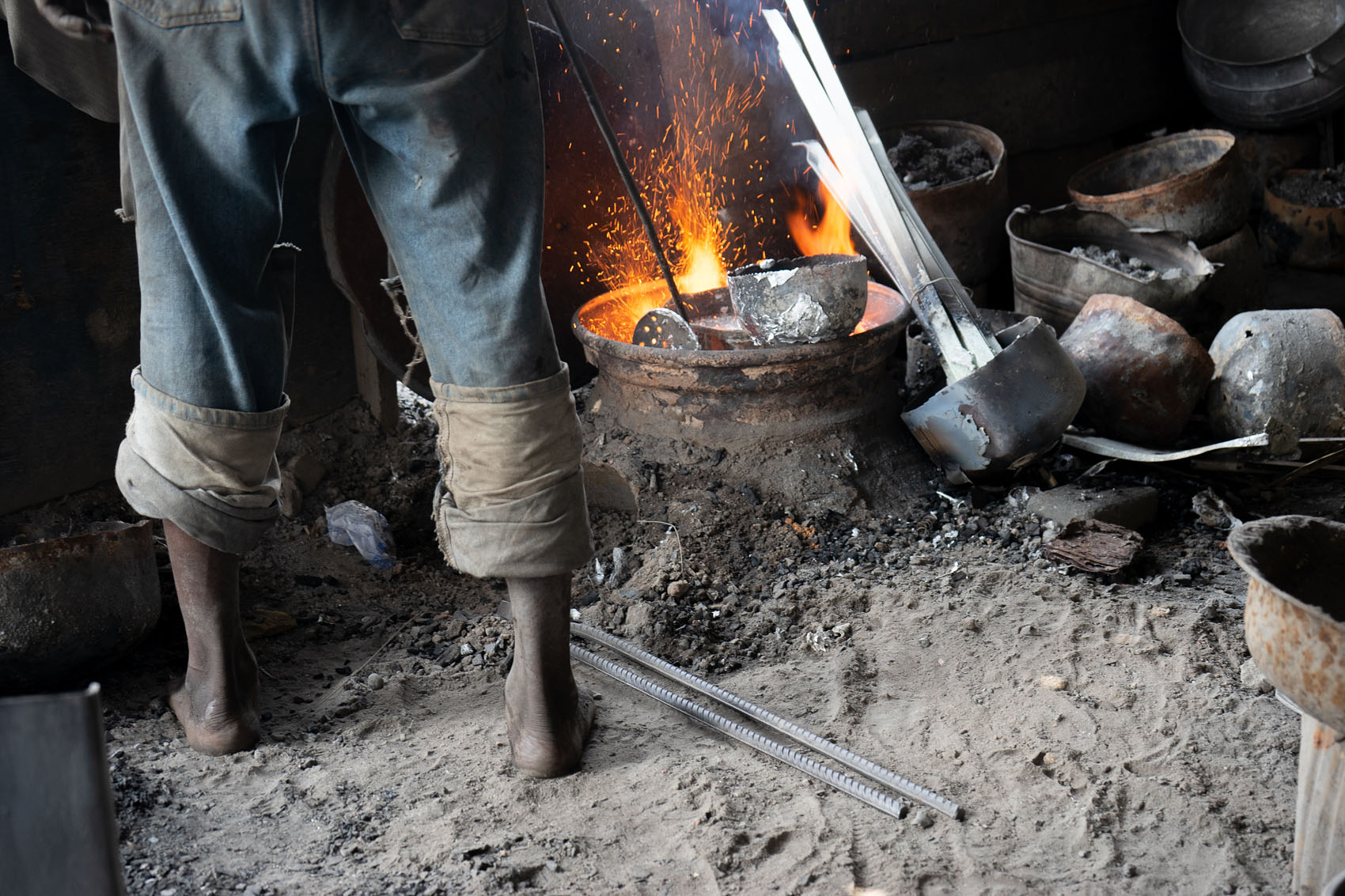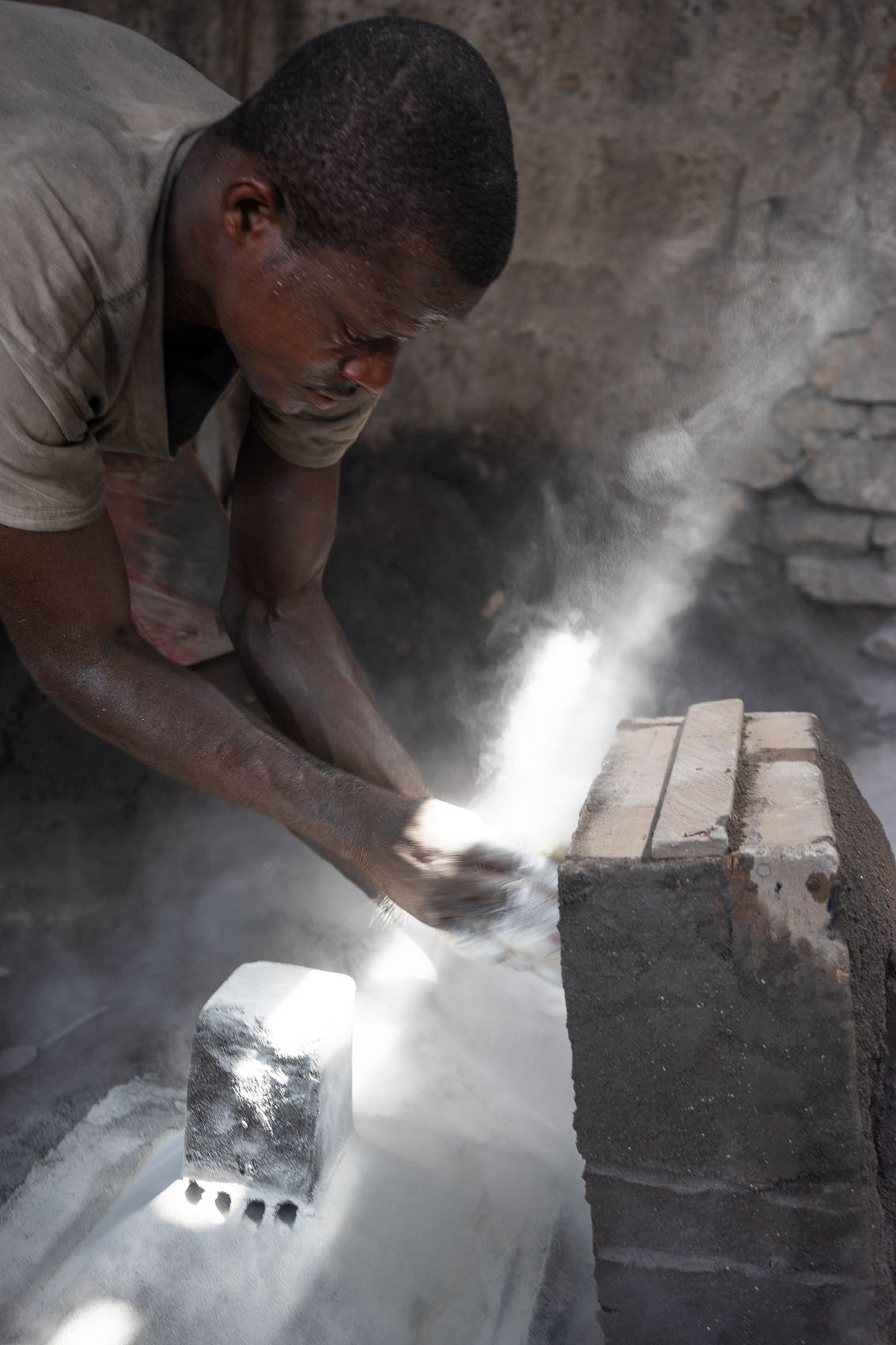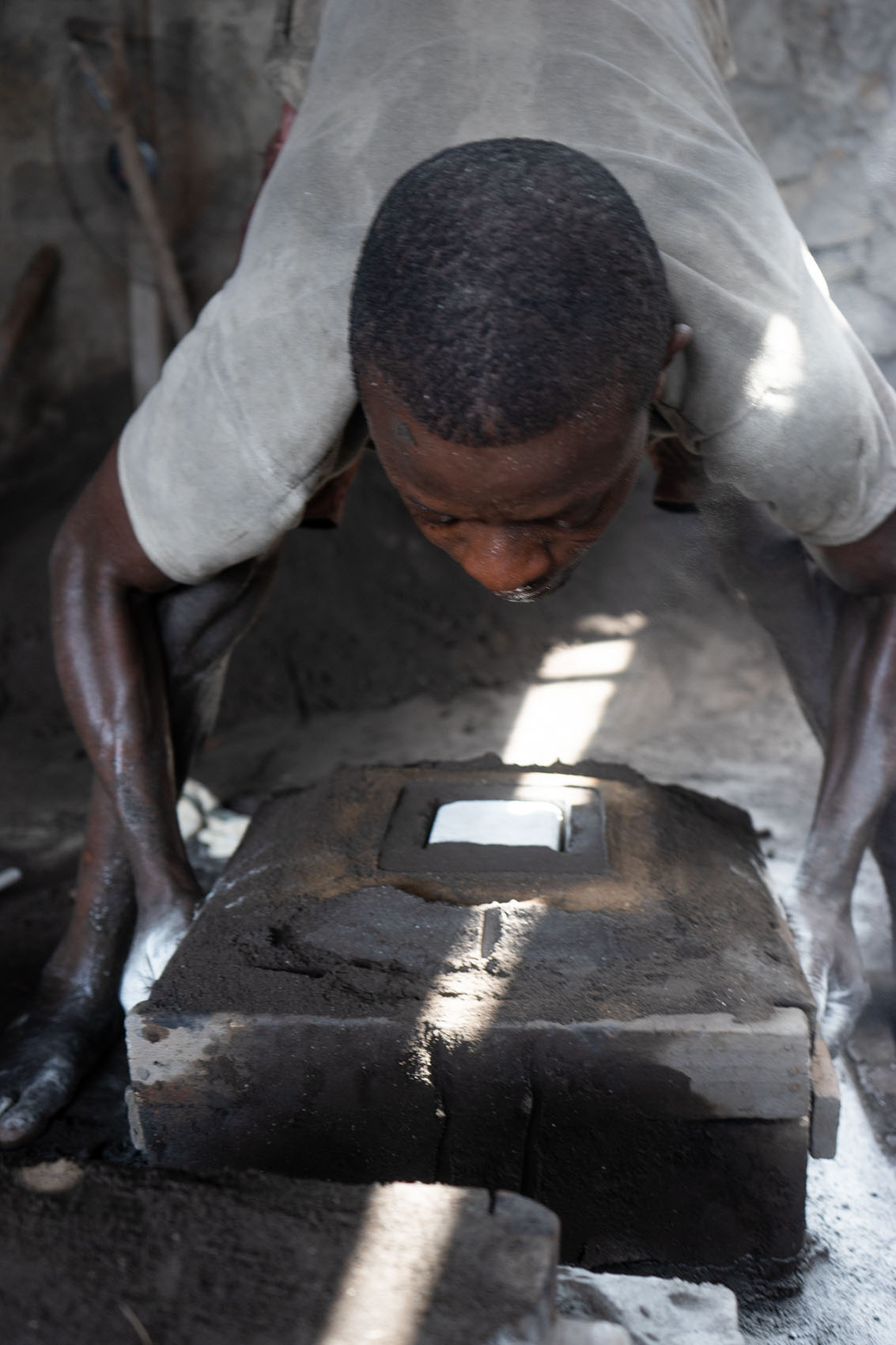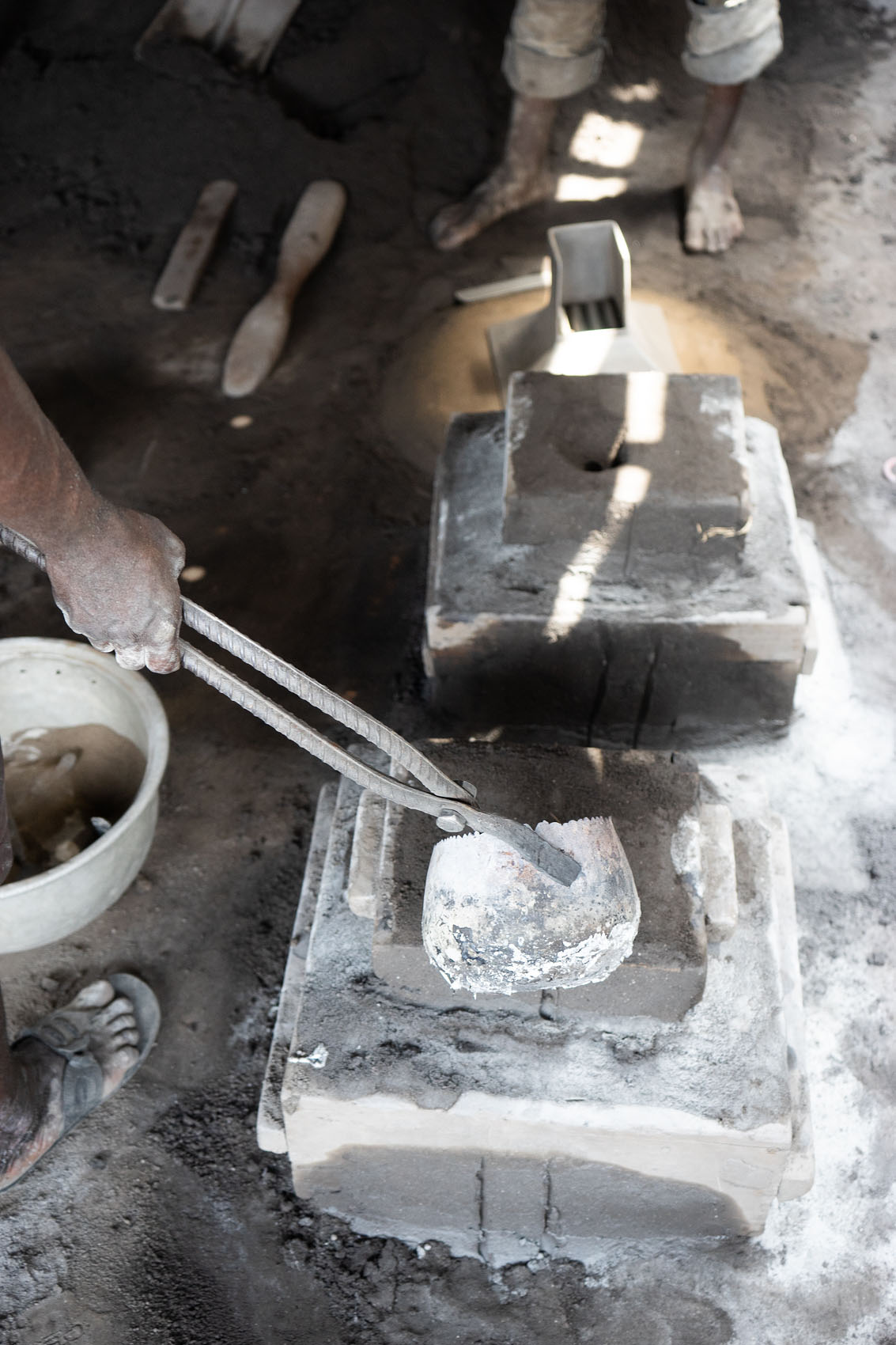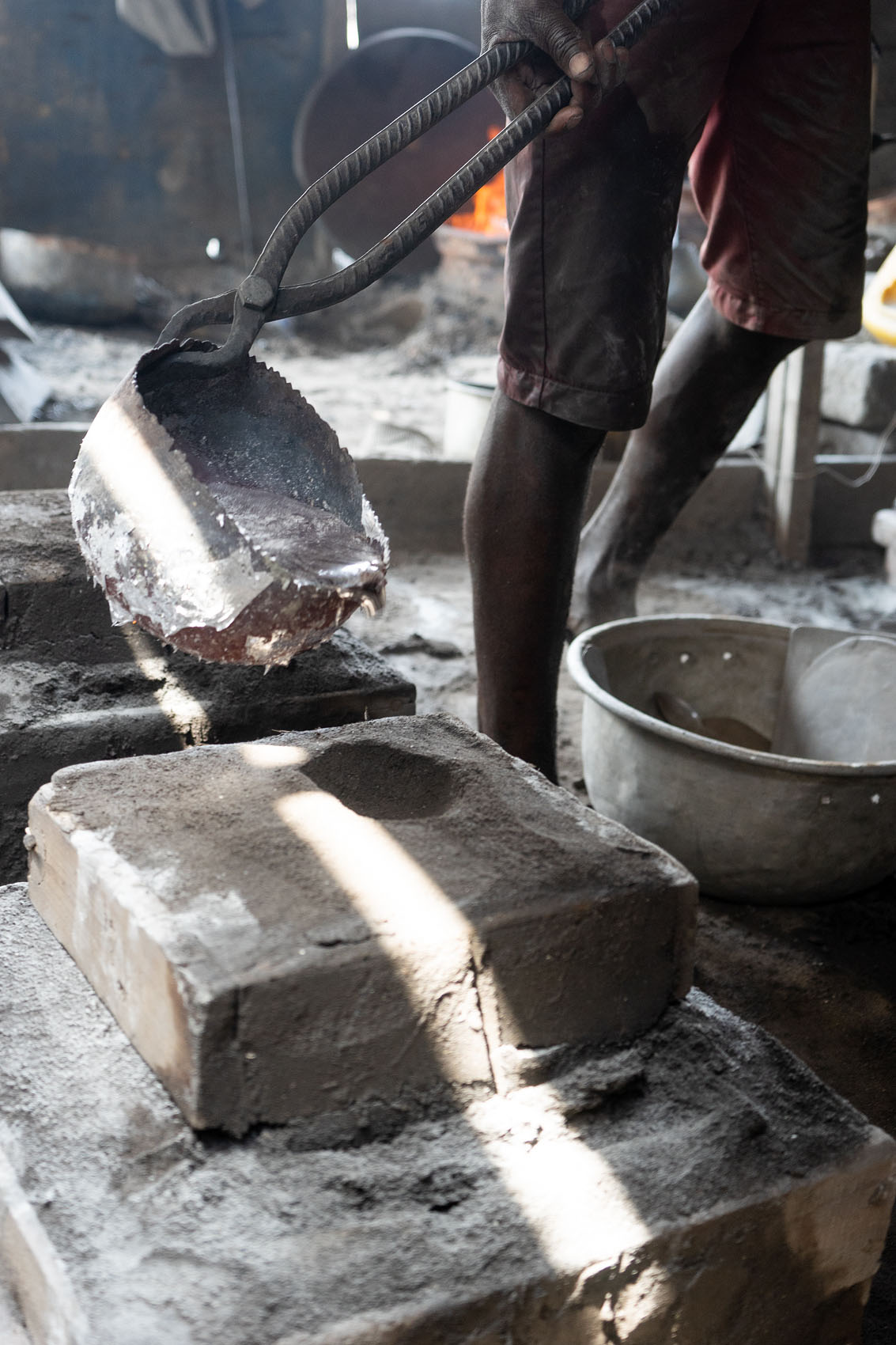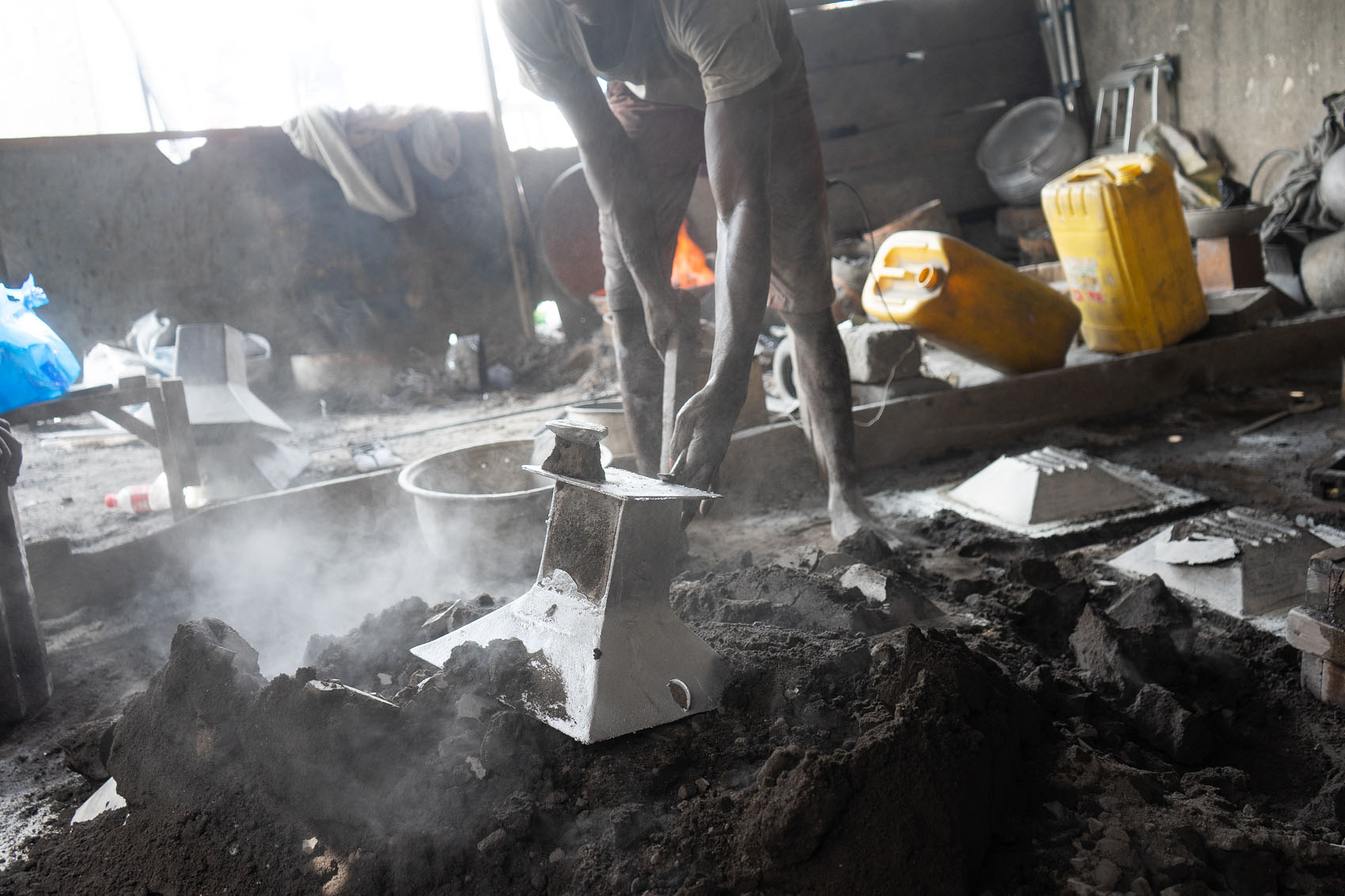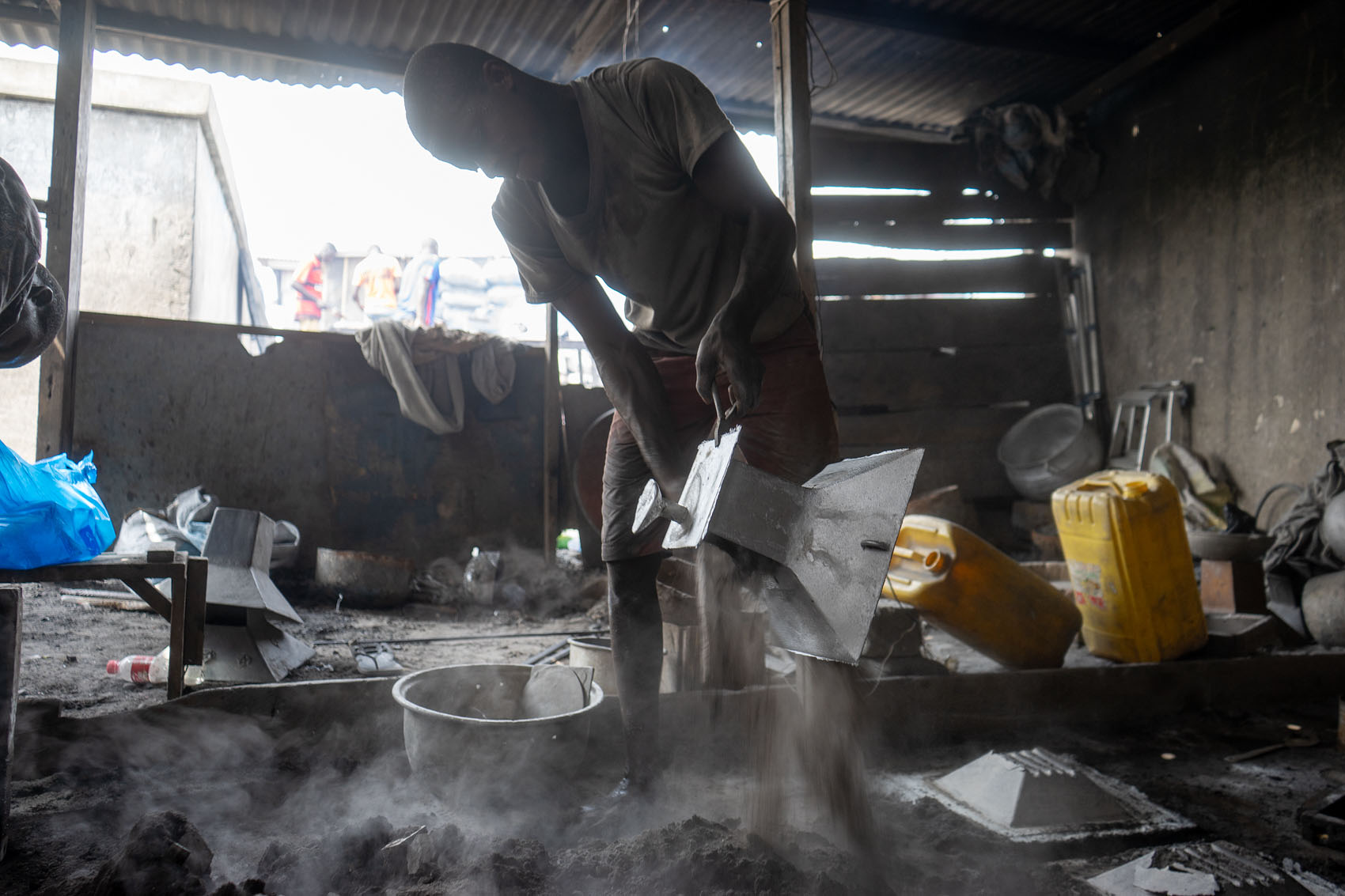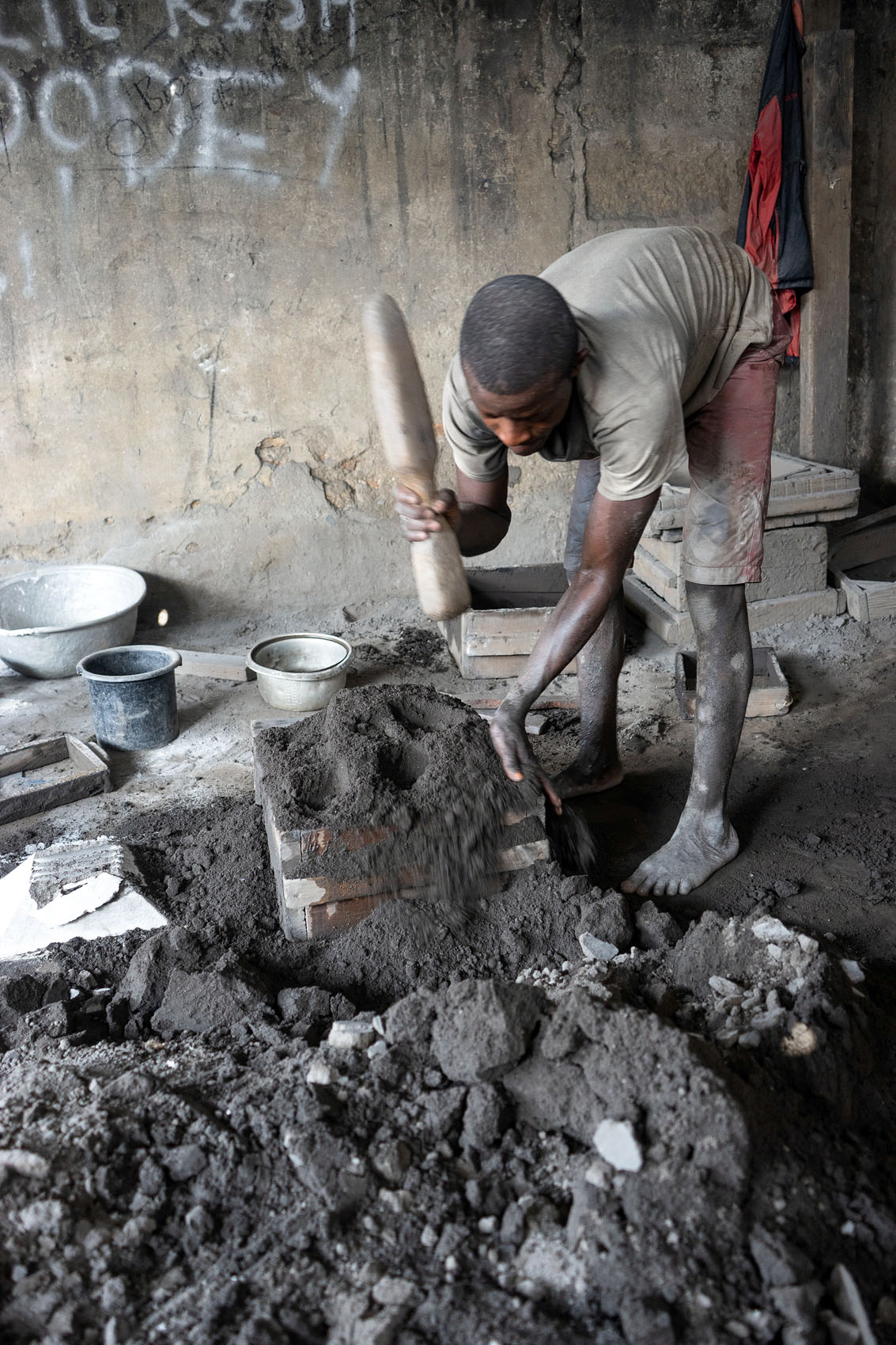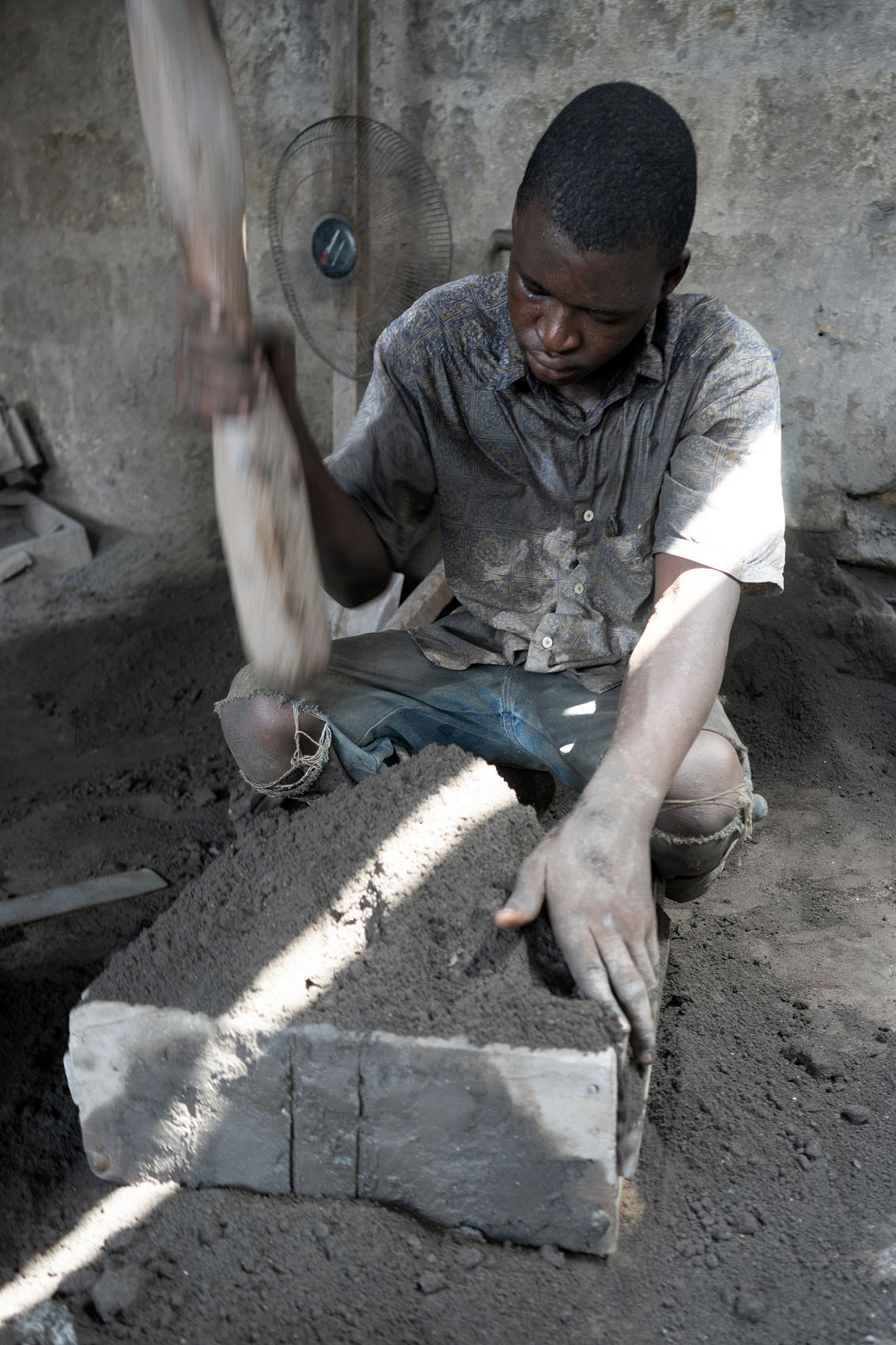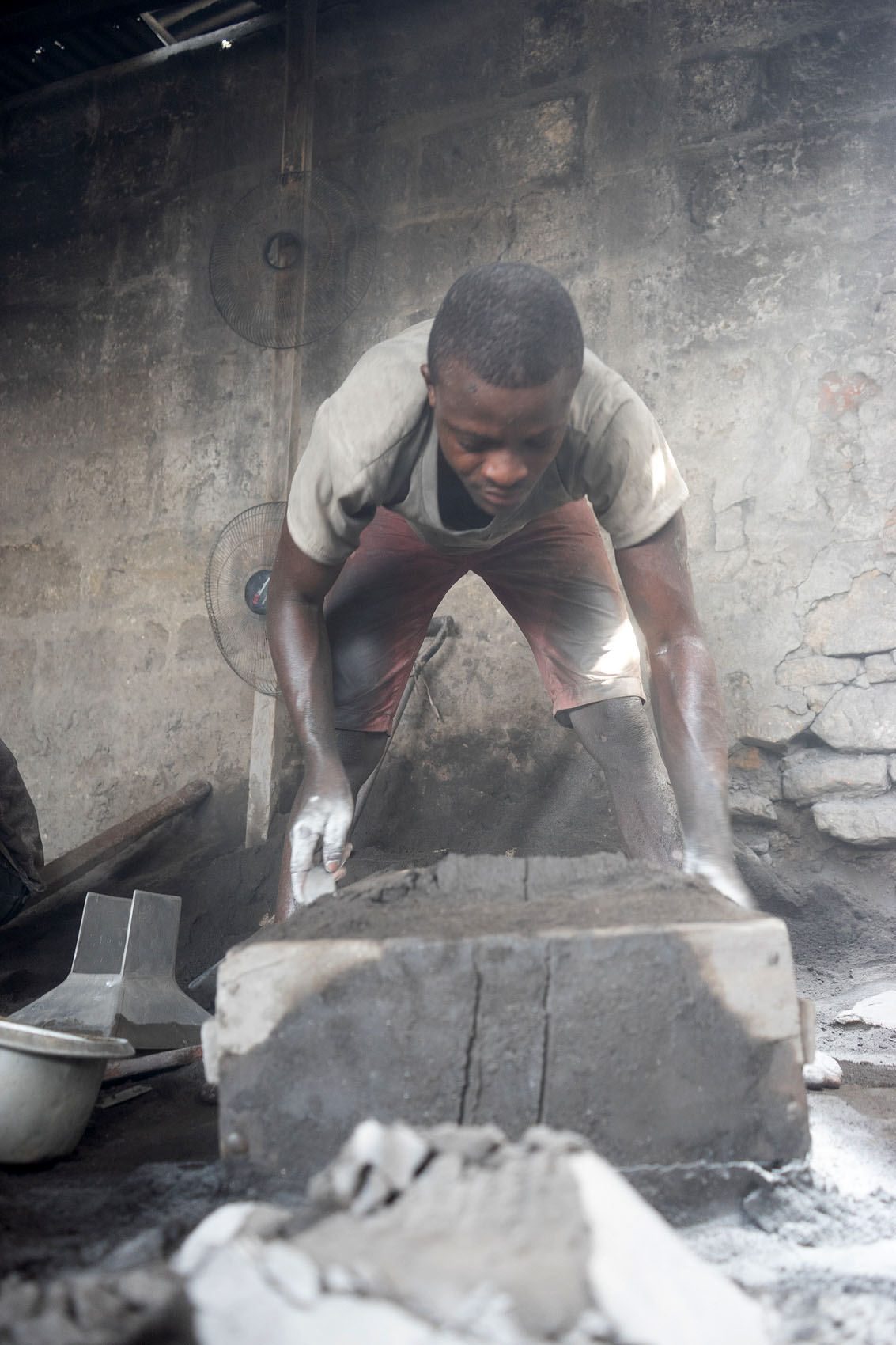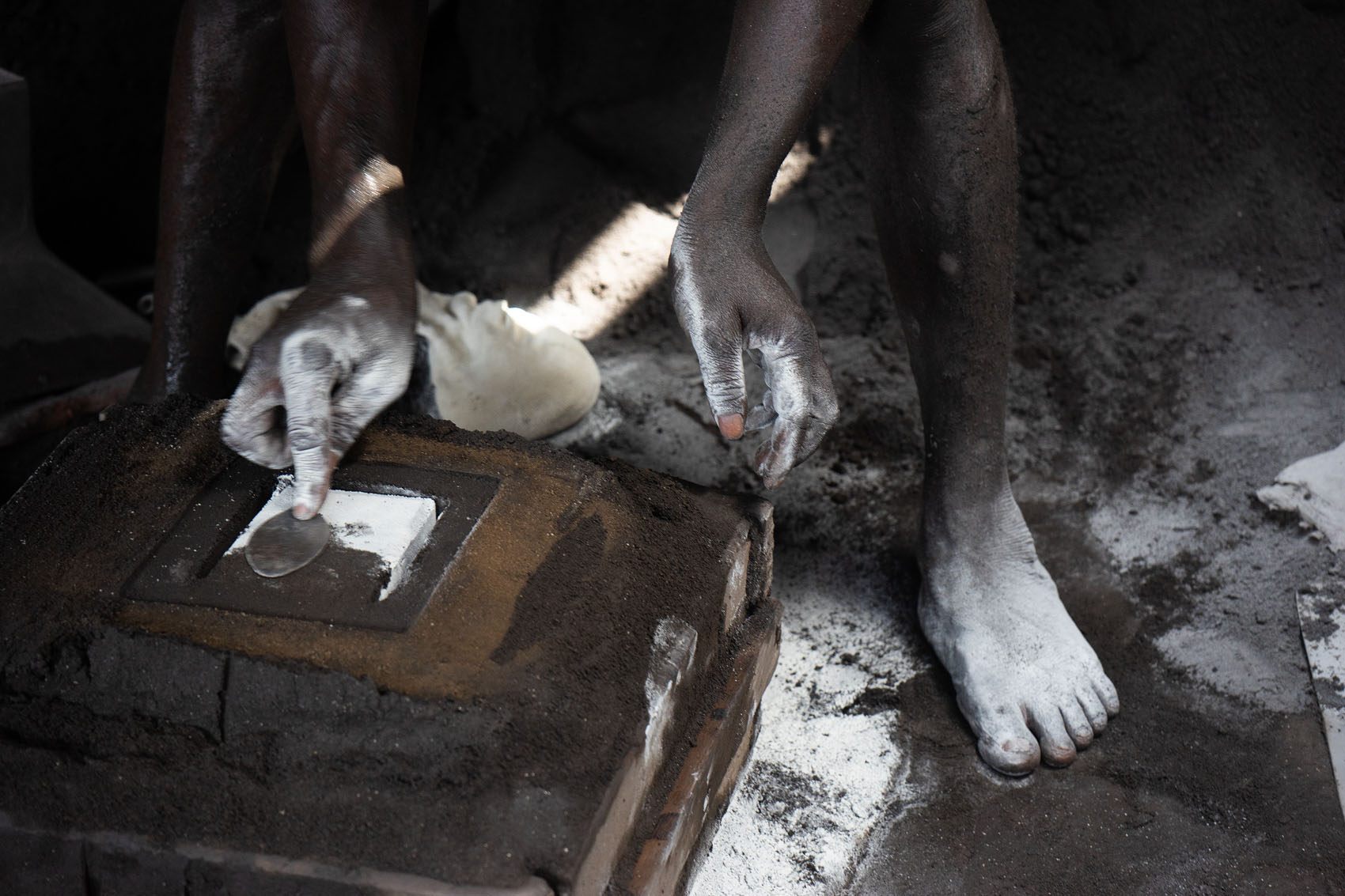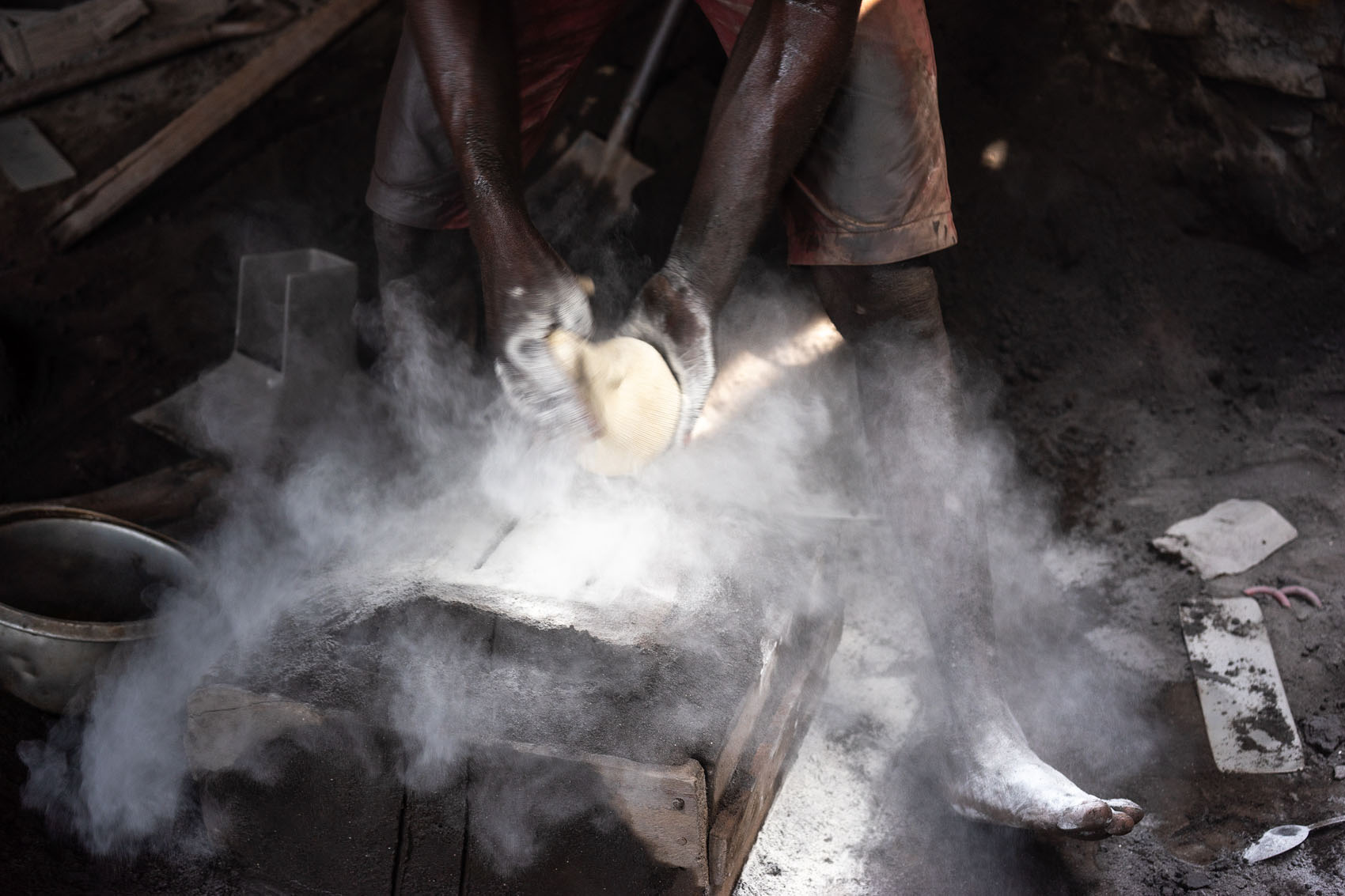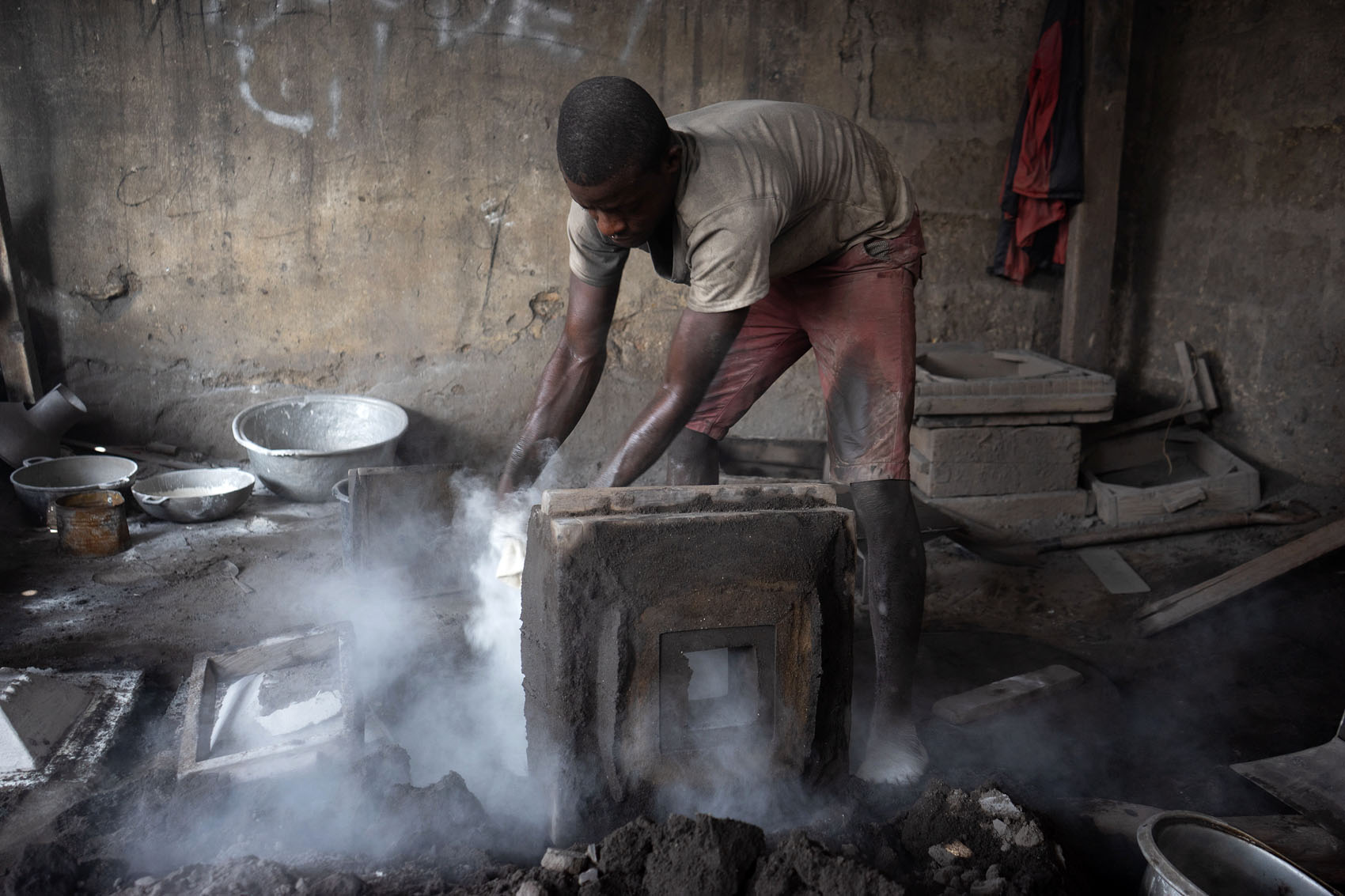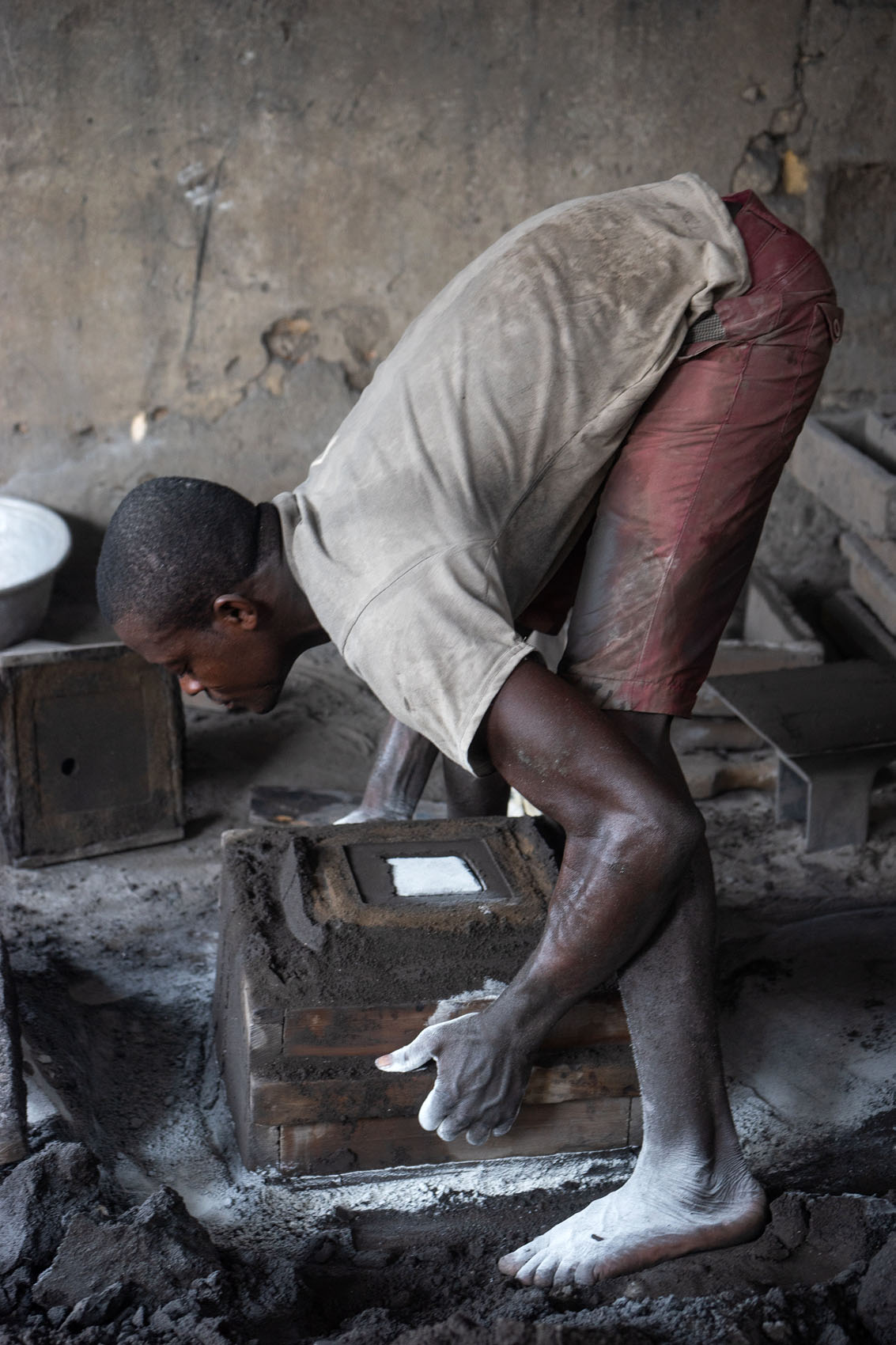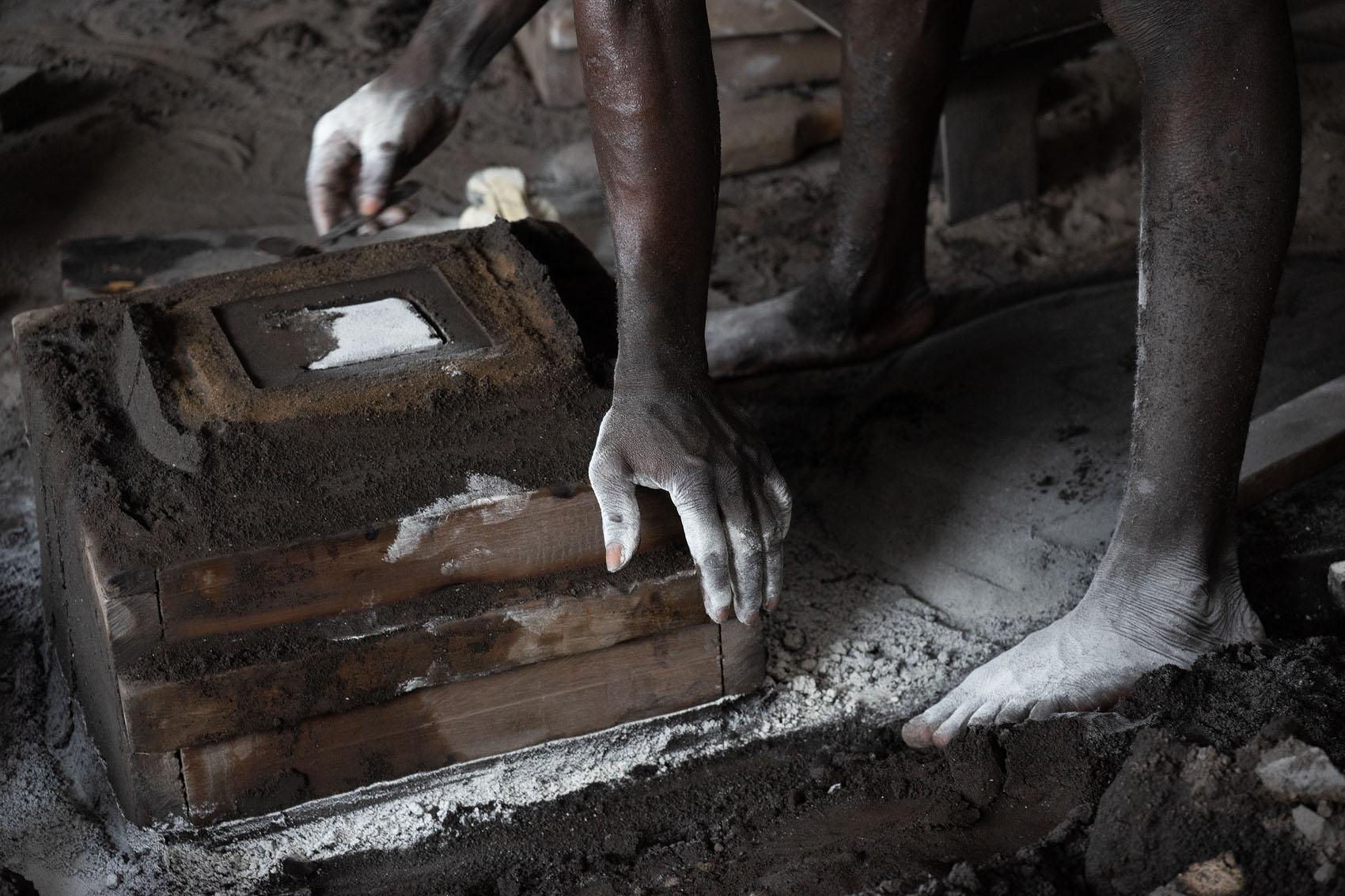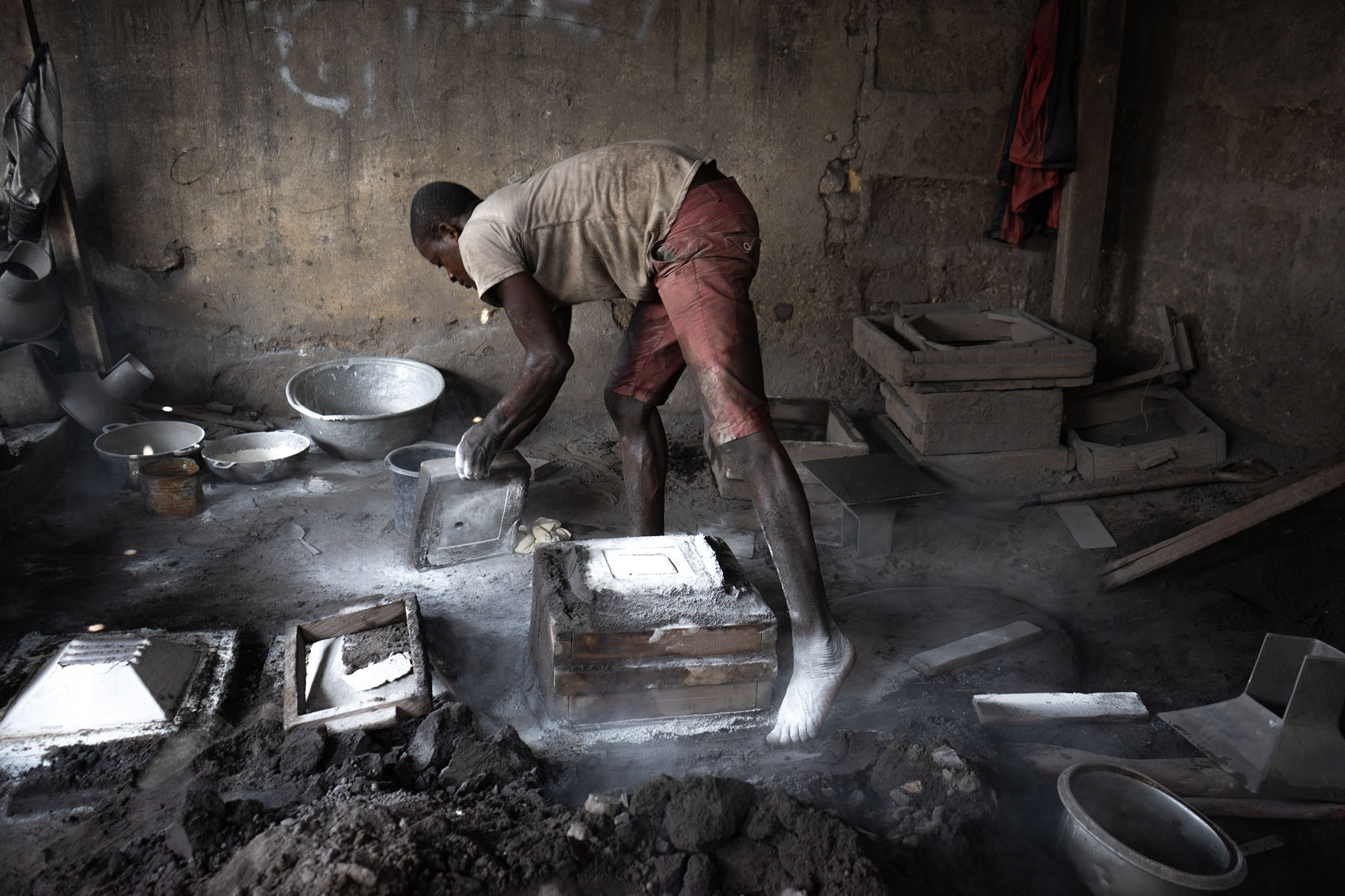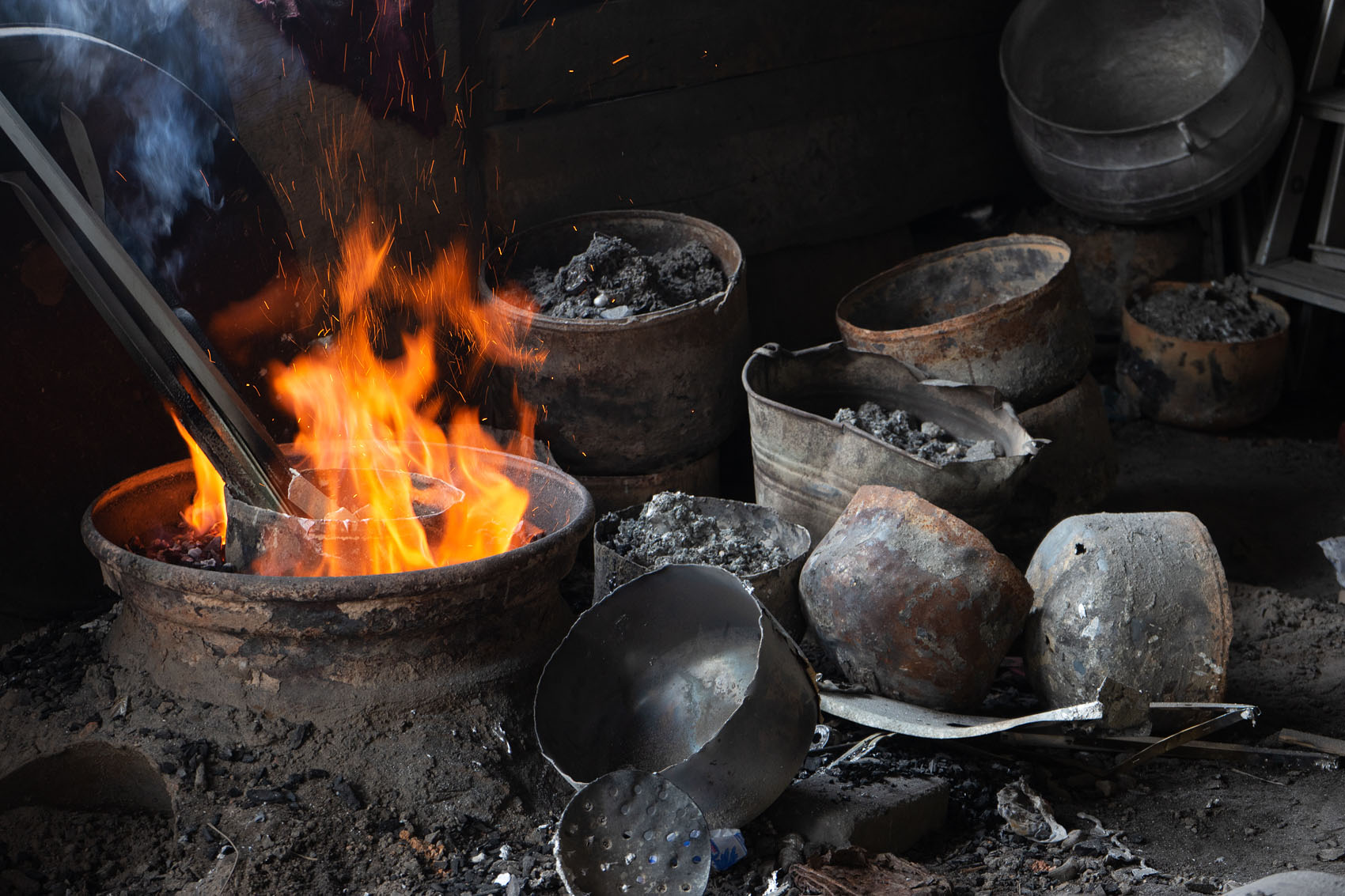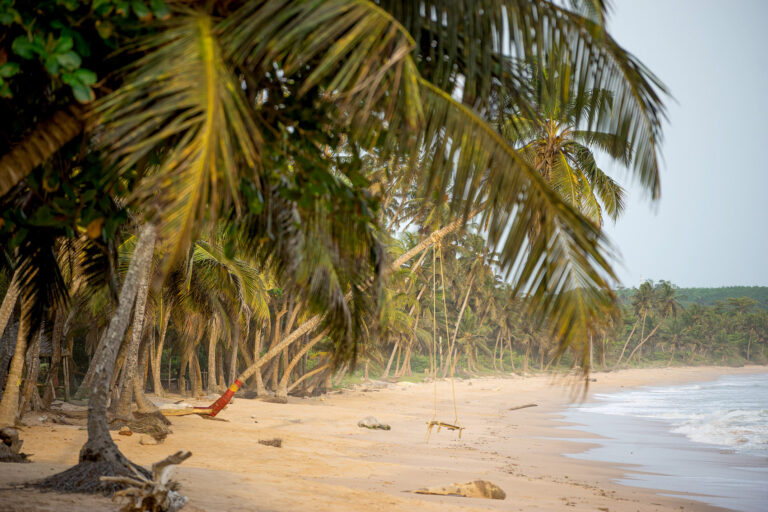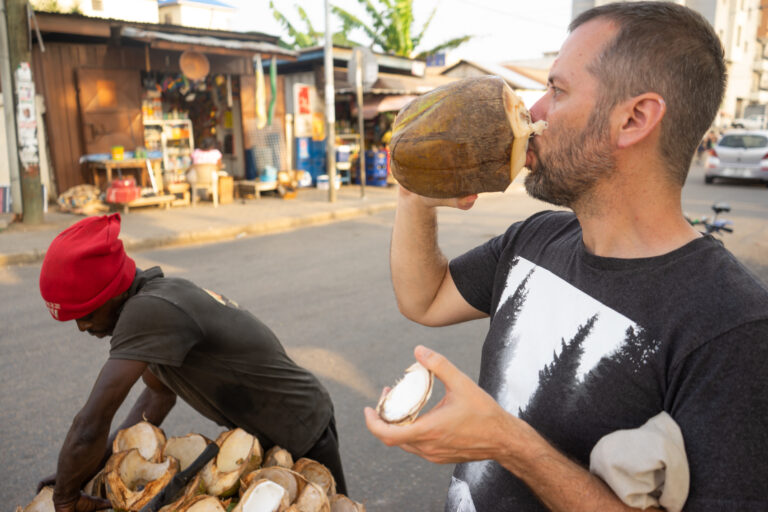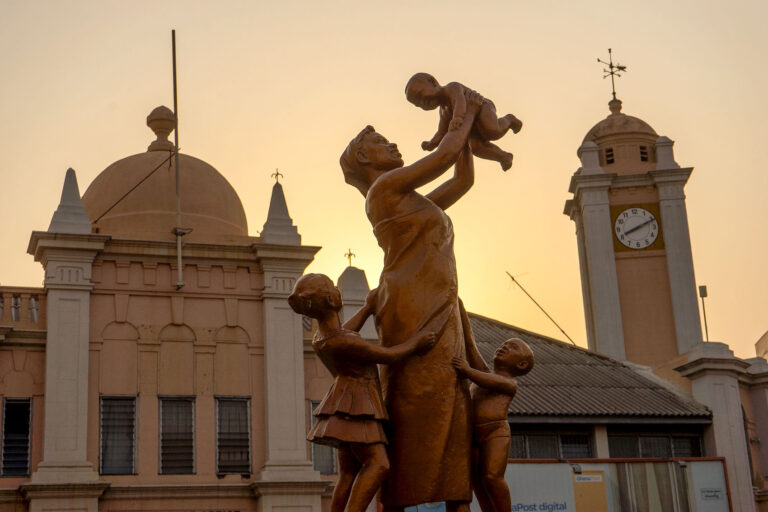Making Coal Pots in Jamestown
Maybe it’s because we come from such industrial societies, but Jürgen and I are always interested in seeing craftsmen ply their trade. The only hand-crafted products back home are the friendship bracelets your nieces force upon you. So when we’re in a place like Ghana and we see people producing actual goods, it’s exciting. What are those, coal pots? Sure, we’ll watch you make coal pots!
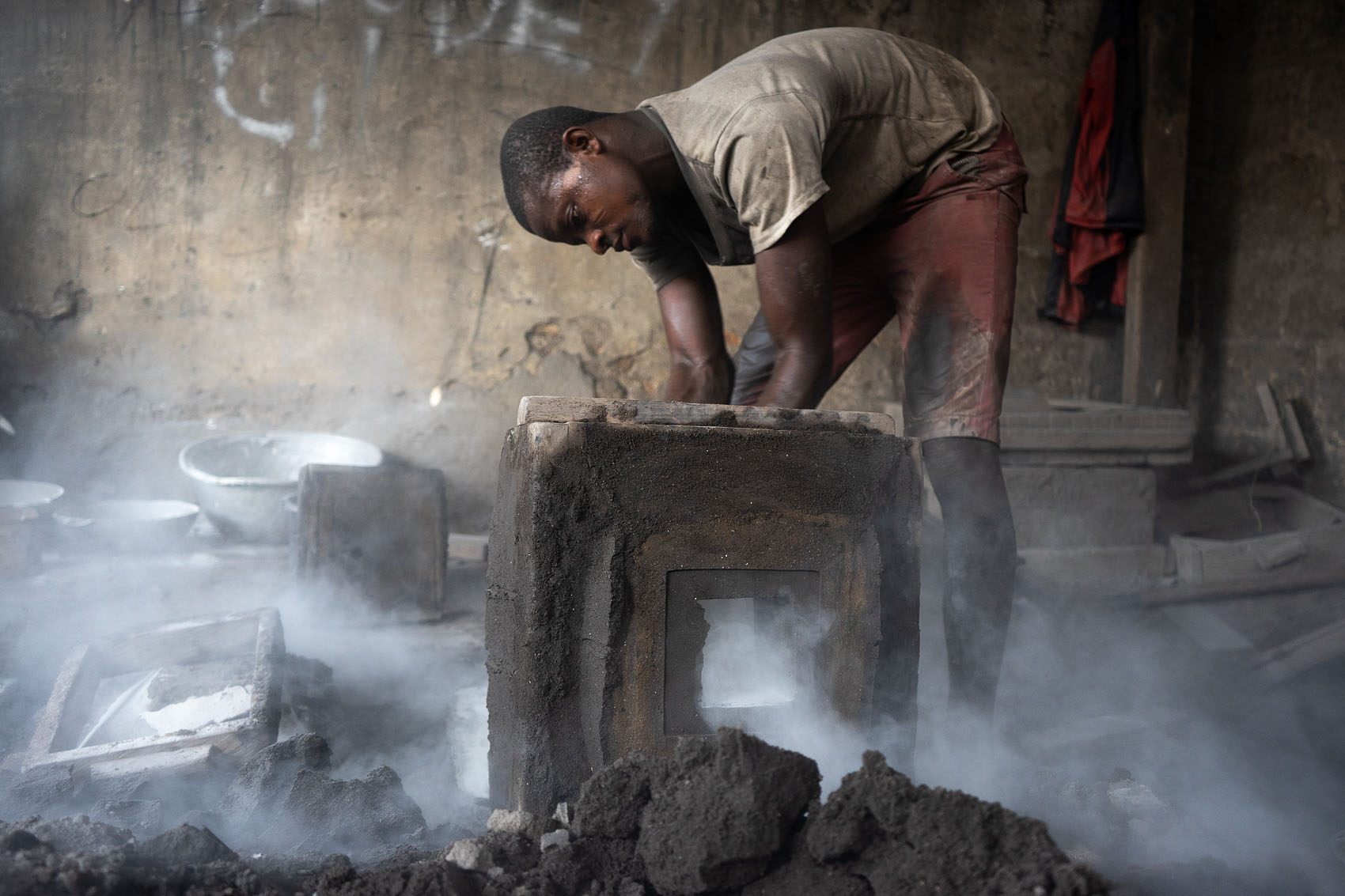
The lucky subjects of our attention were a couple guys holed up in a hut, in the back alleys of Jamestown. In conditions that are cramped and hot, but unbelievably photogenic, an apprentice and his master produce up to 50 aluminum coal pots per day. These funnel-shaped containers hold burning coals, and can be used to boil bowls of stew or grill meat skewers. They’re among the simple tools you see people in Ghana using every day, but never pay much mind to.
The production process is pretty straight-forward. Inside the hut, they had a little makeshift oven made of bricks, assisted with an electric fan, which is used to melt the aluminum needed for their work. This aluminum is junk metal purchased at bargain prices at scrapyards around Accra… notably the massive electronic dumping ground near Agbobloshie Market.
As the metal boils, they create molds by forming sticky sand around an already existing pot. These molds are then filled four at a time with the liquid metal. They cool for about ten minutes, get splashed with water to cool down. Then the mold is smashed, revealing the finished pot, which is subsequently polished. And because the mold has been trashed as part of this process, they have to create new ones every time.
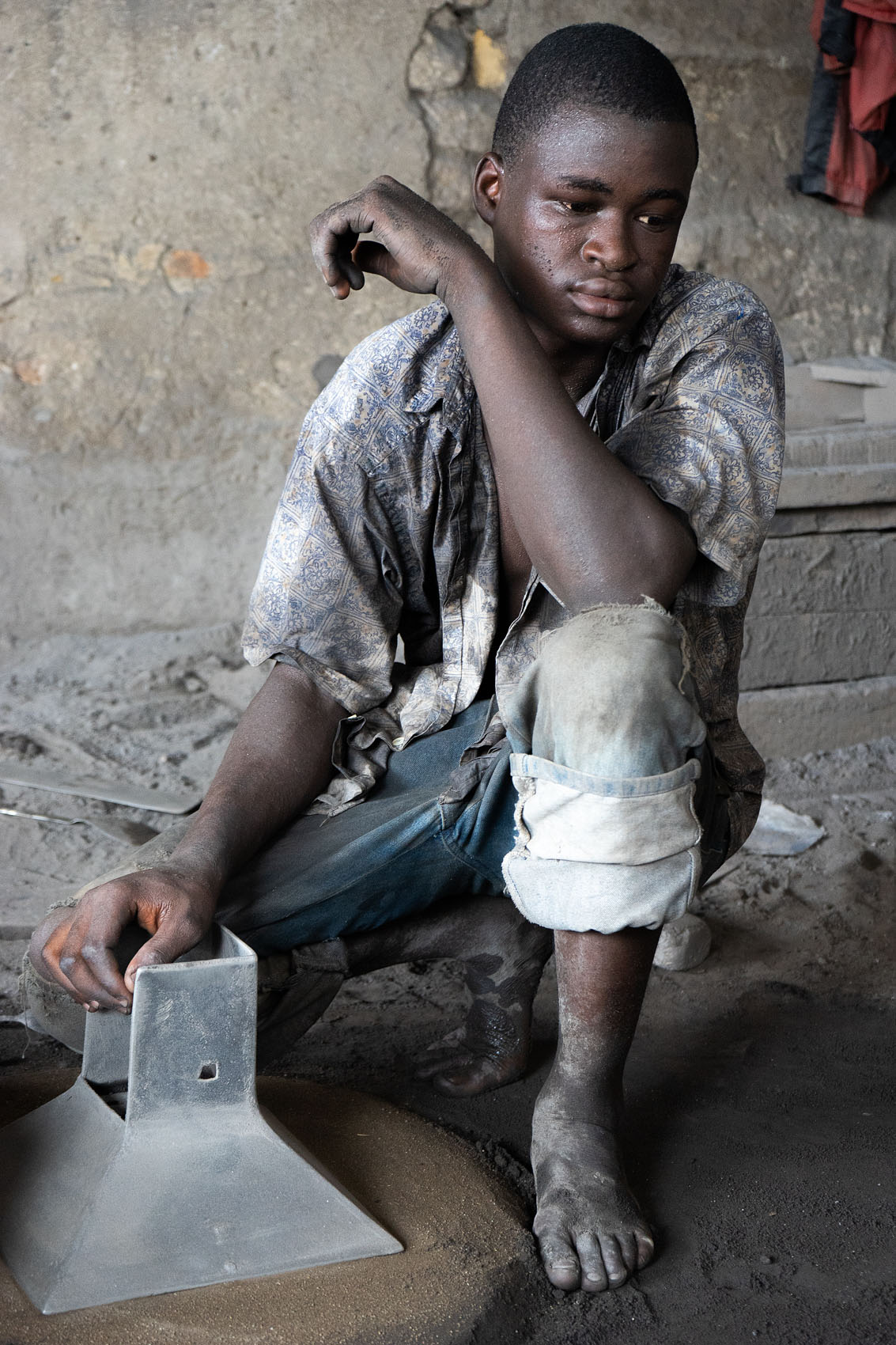
If you’re interested in seeing the same thing, you could either walk around the neighborhood at random, or get in touch with our buddy Emmanuel, from the Jamestown Gbekekii School (his contact details are in this post), who would be able to facilitate a visit. To tell the truth, we’re normally much more in favor of showing up unannounced at places, and just asking if we can take pictures. But we’ve learned the hard way, that this isn’t a recipe for success in Accra. Here, such an entrance is considered rude, so it’s a better idea to arrange a visit in advance… whether through our contact our your own.
